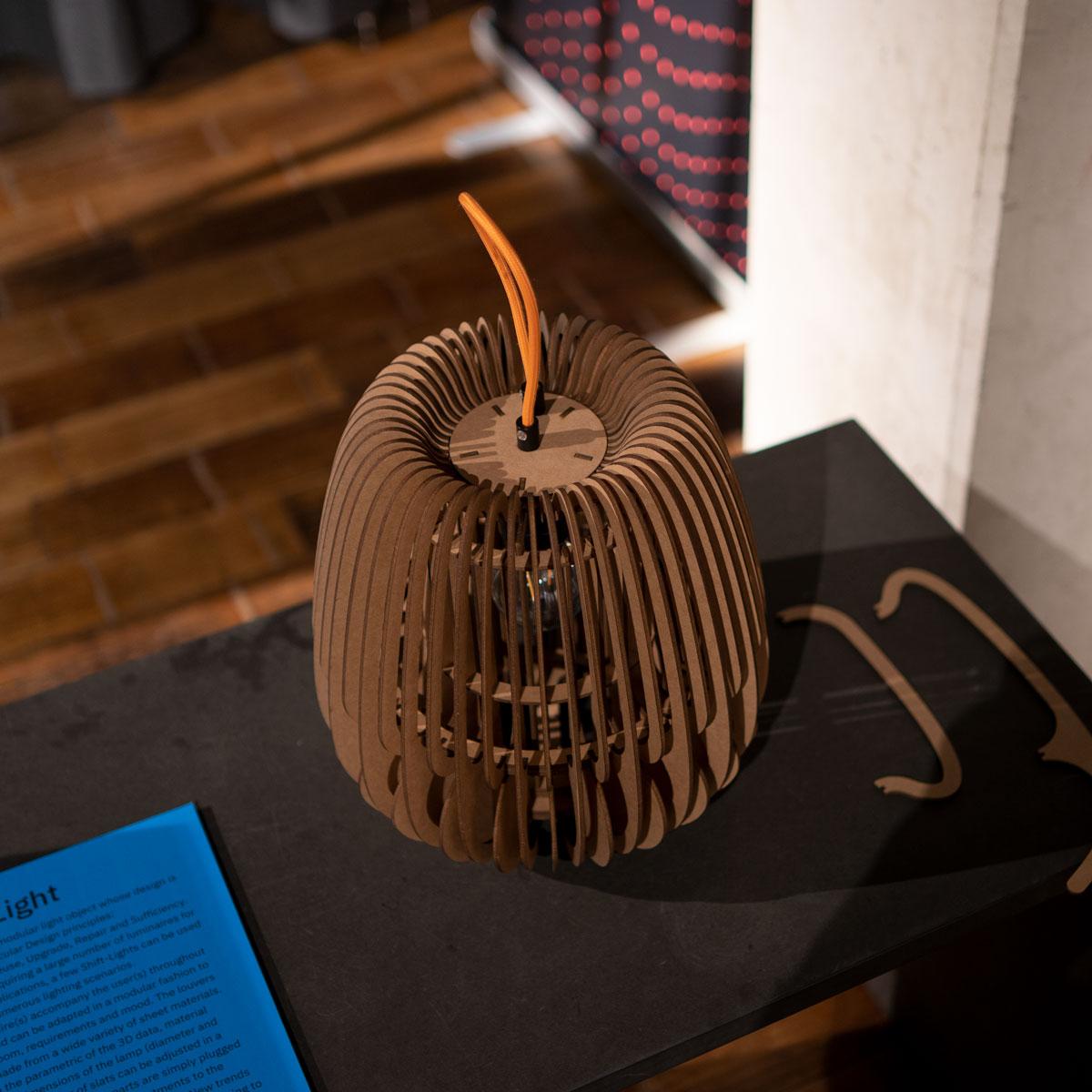the future of making
EXPO
The exhibition offers a compilation of three series, that together give a unique insight into the collaboration between Hamburg citizens, makers, scientists, innovators, pupils & students together with local artisans and FabLabs.
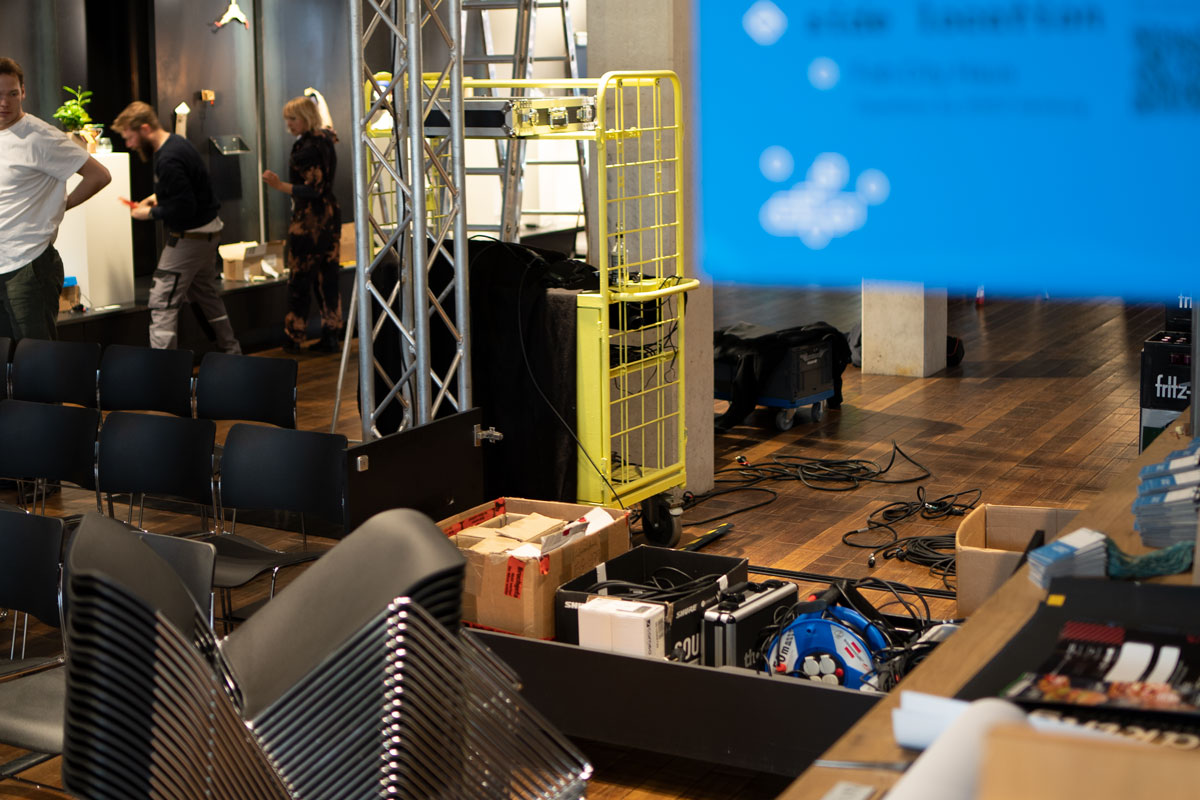
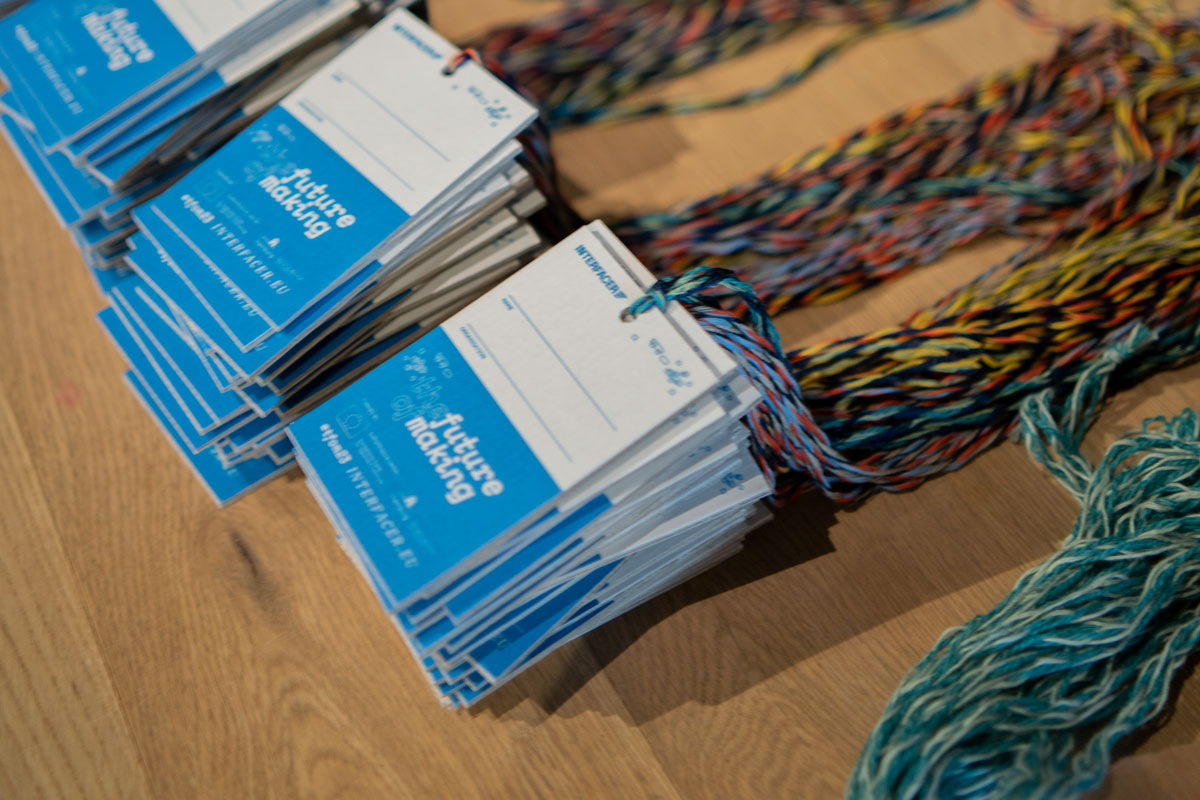
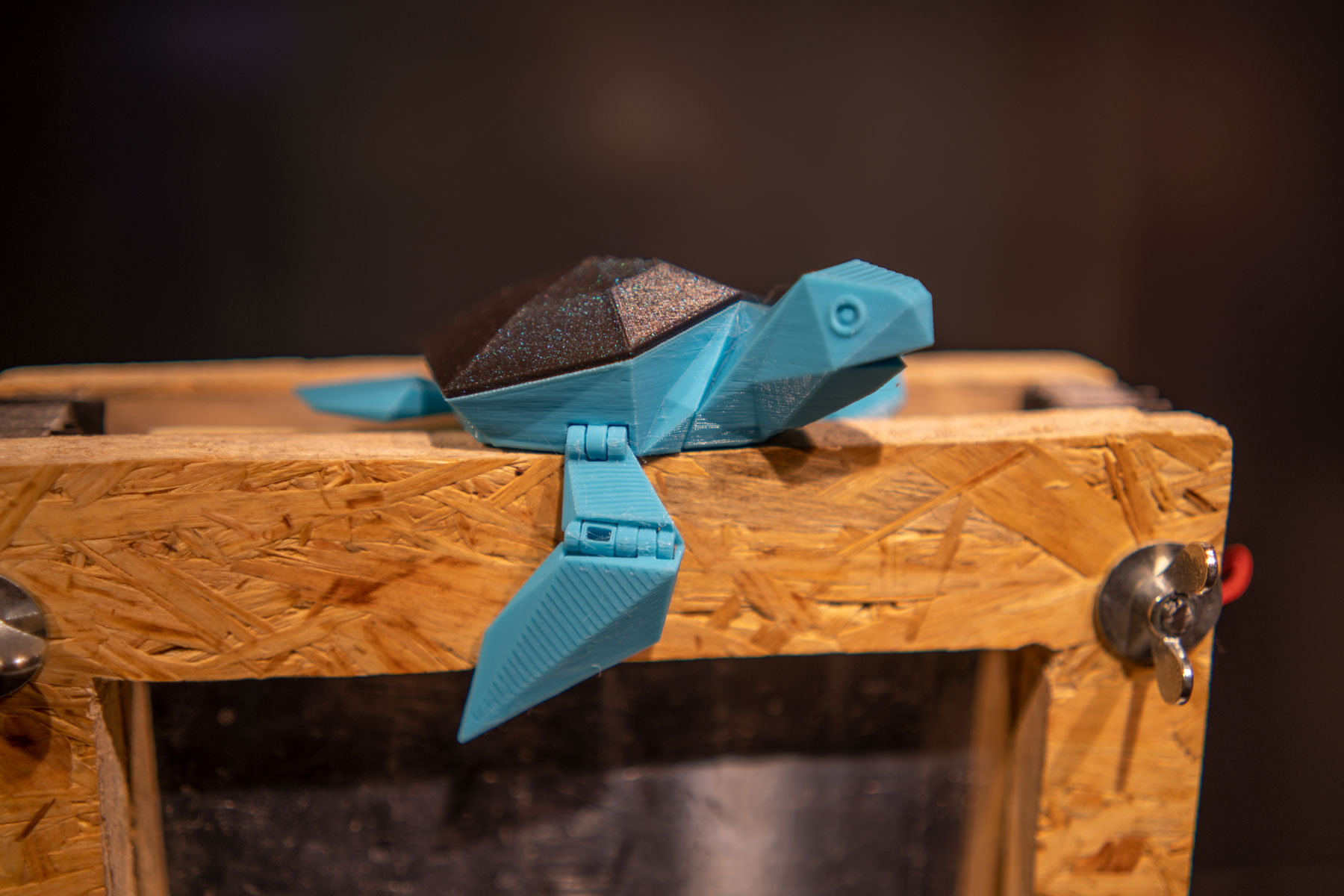
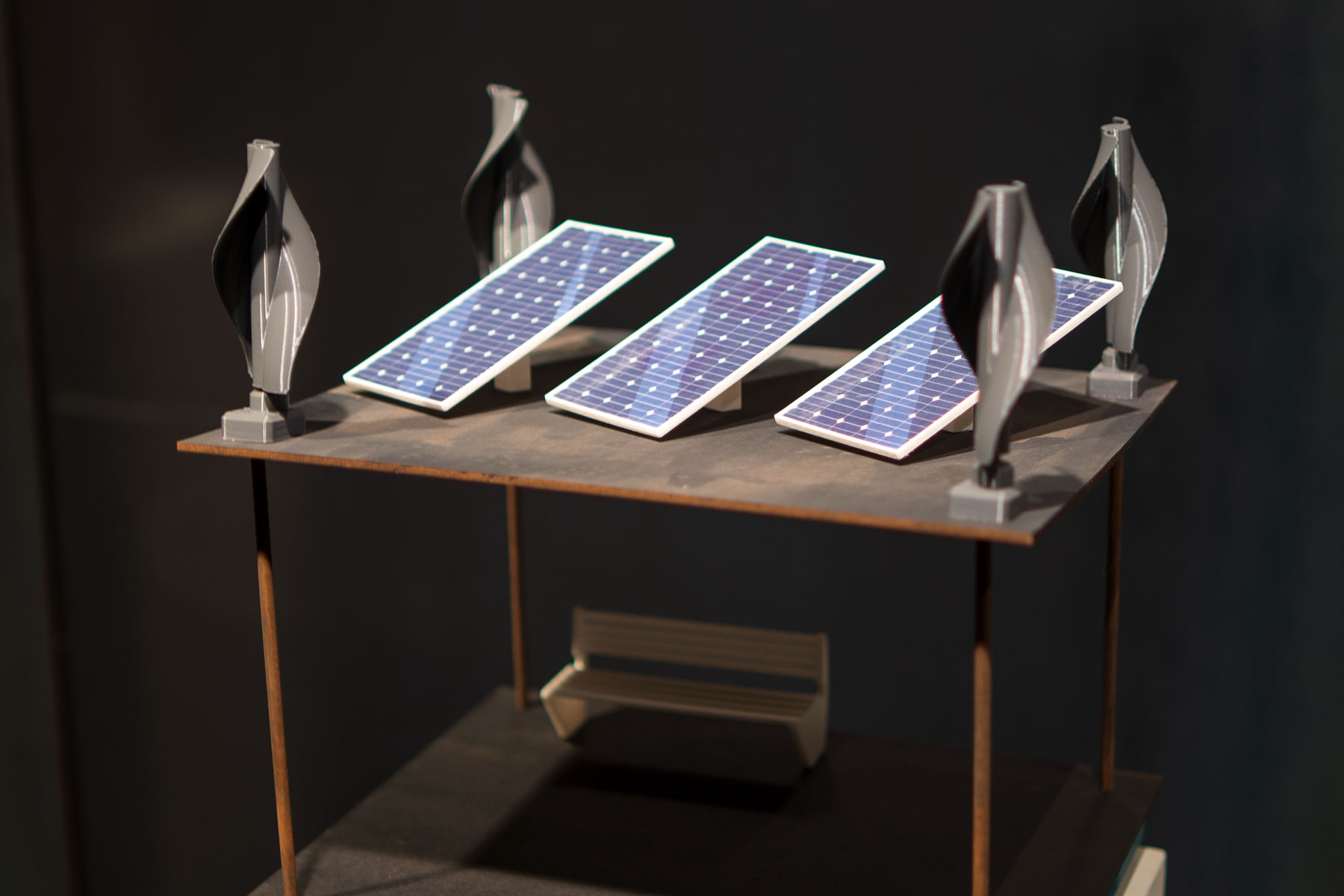
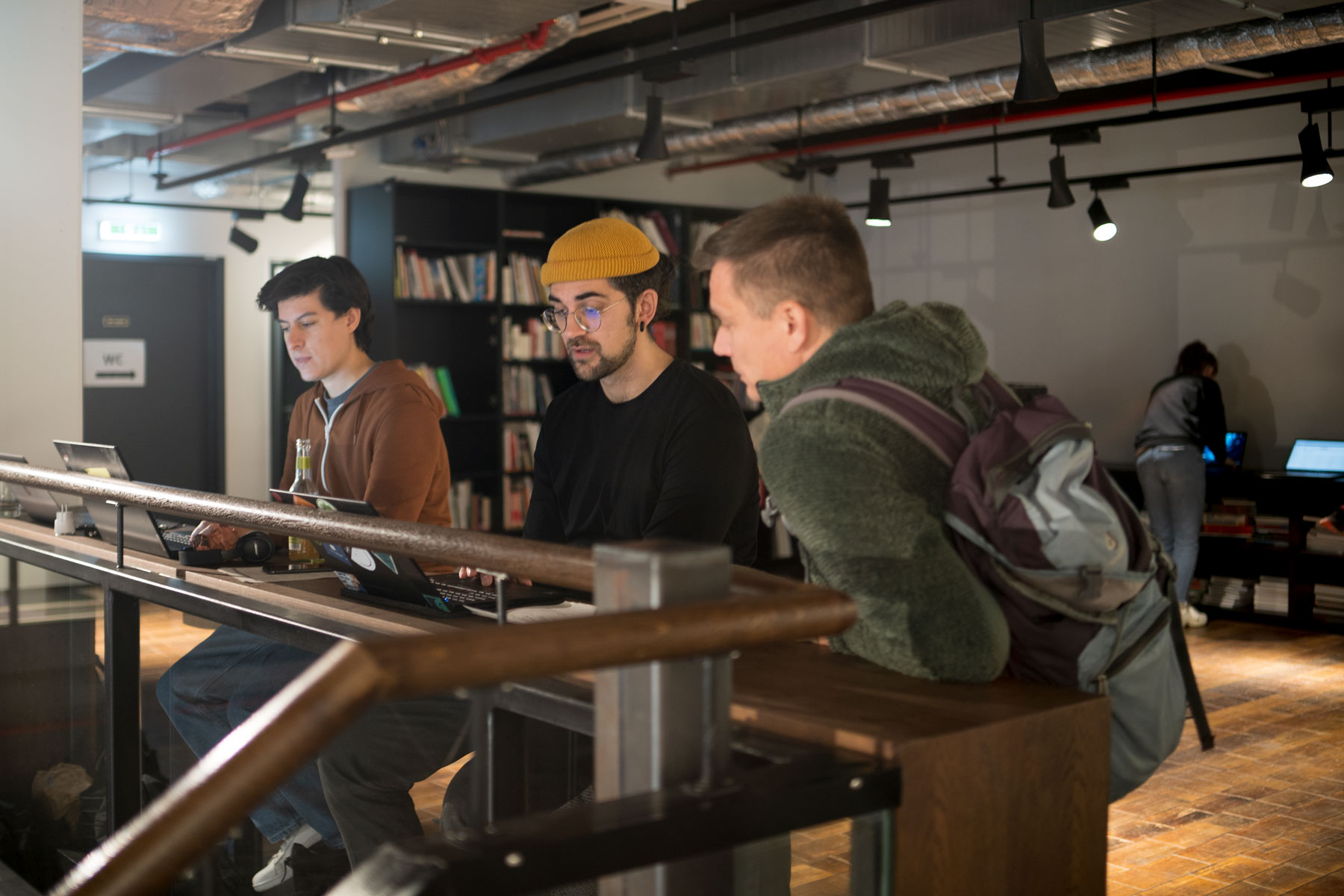
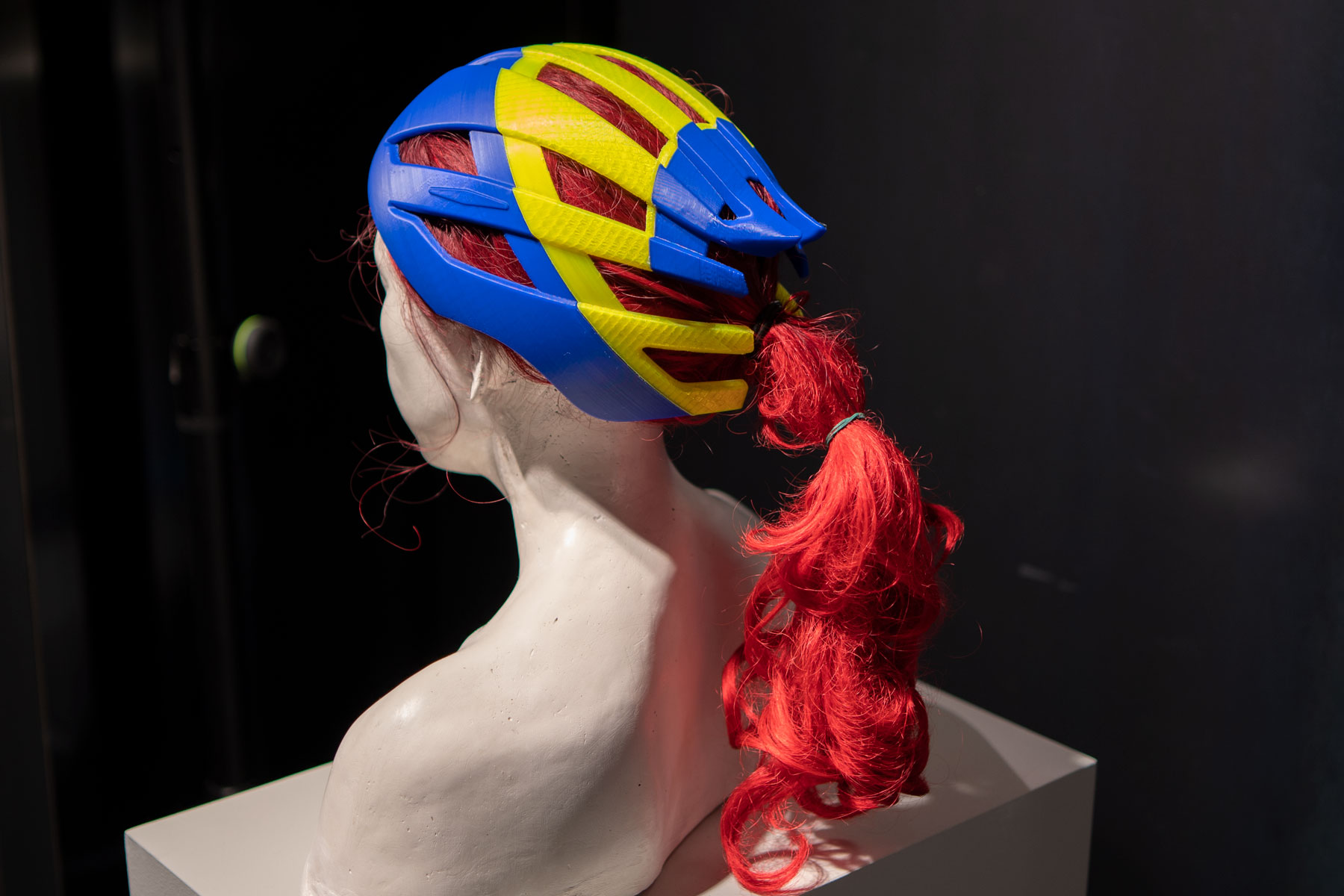
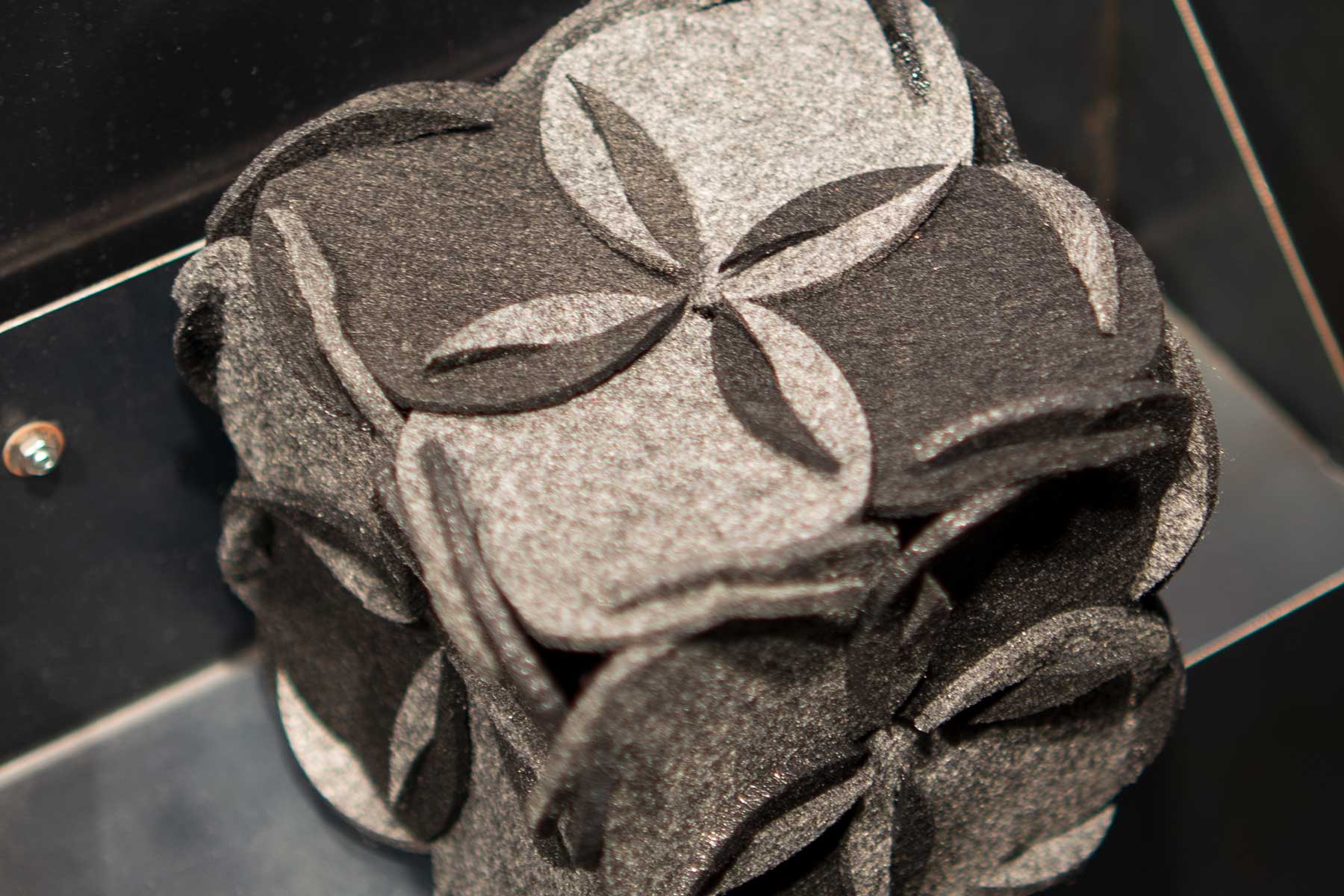
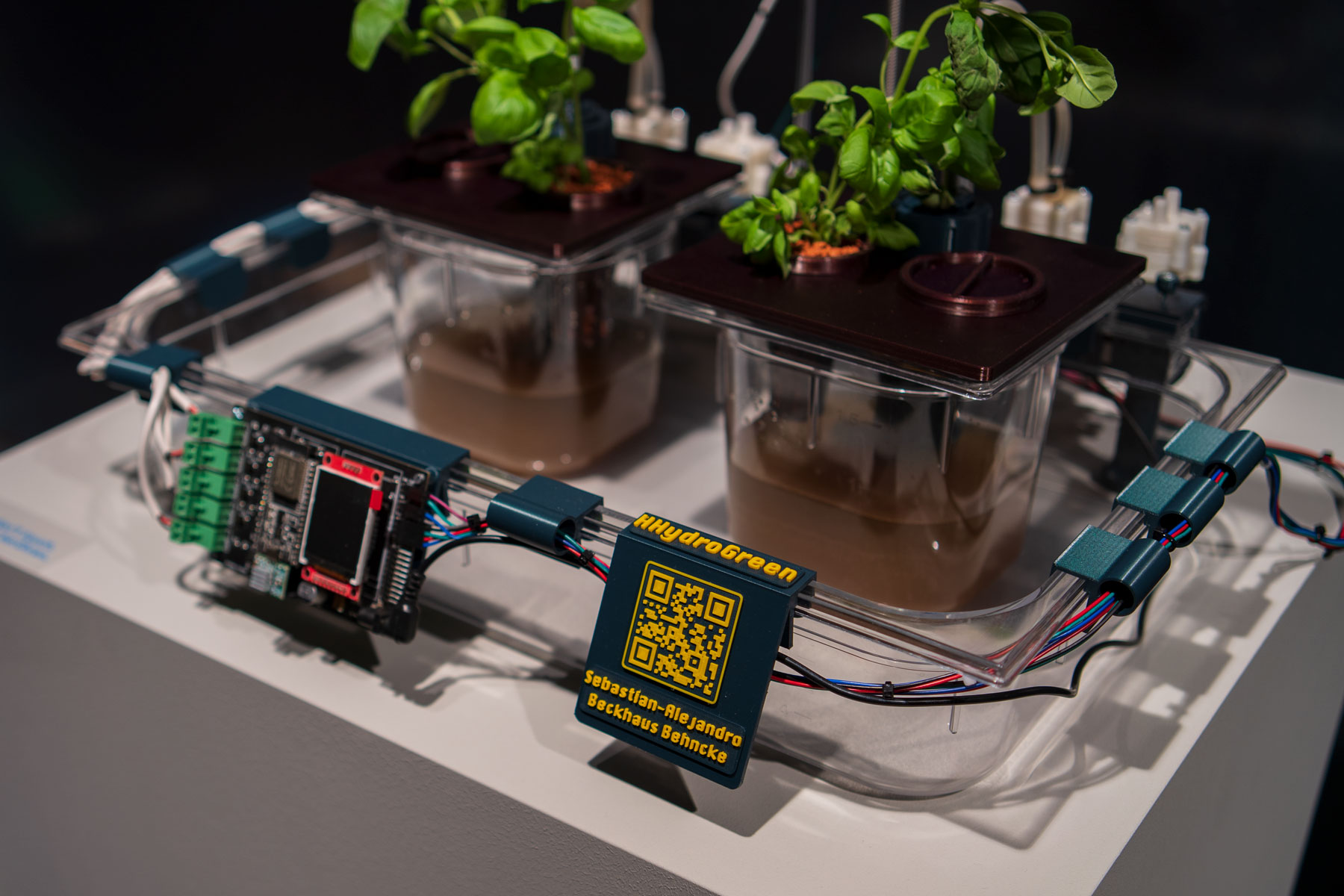
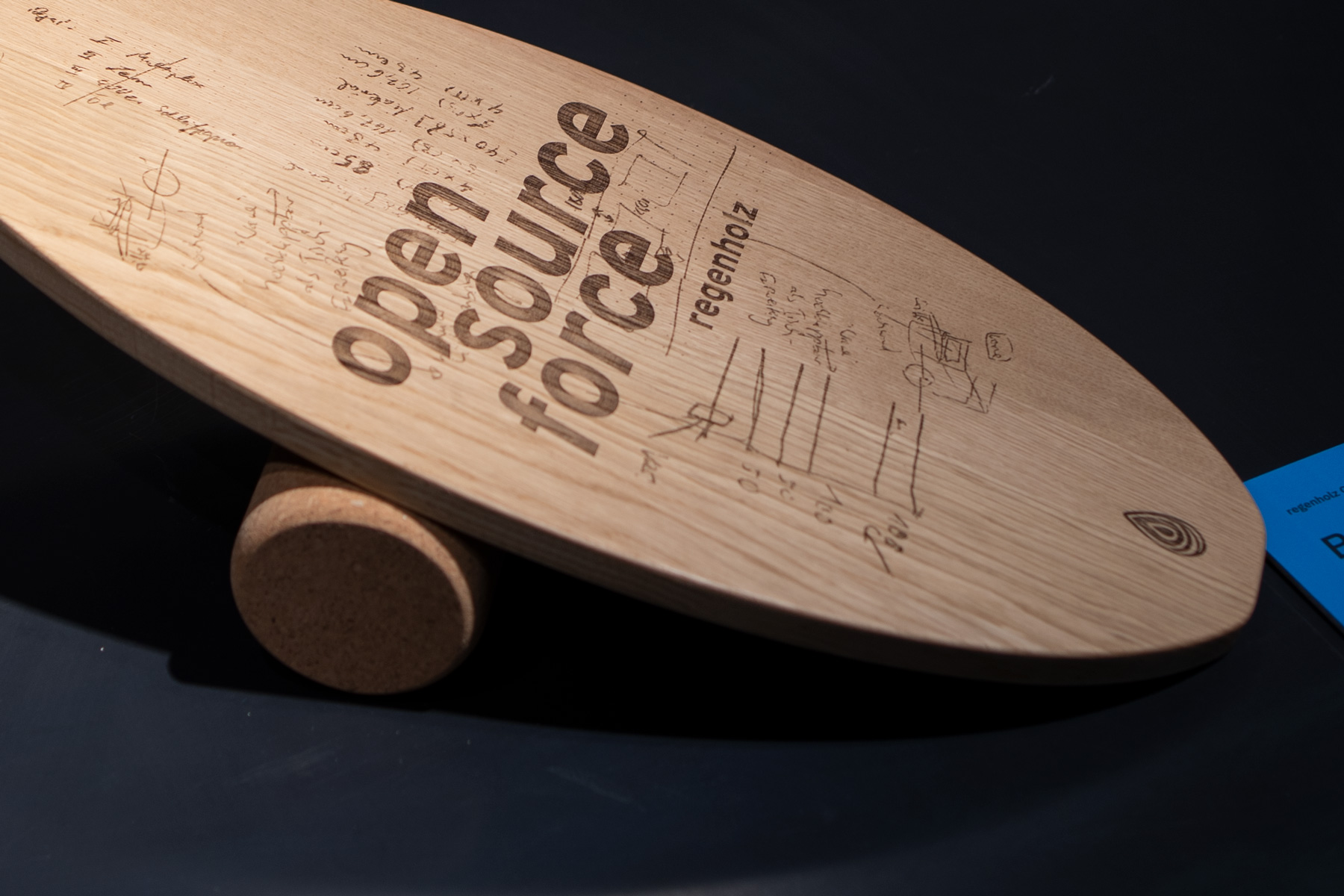
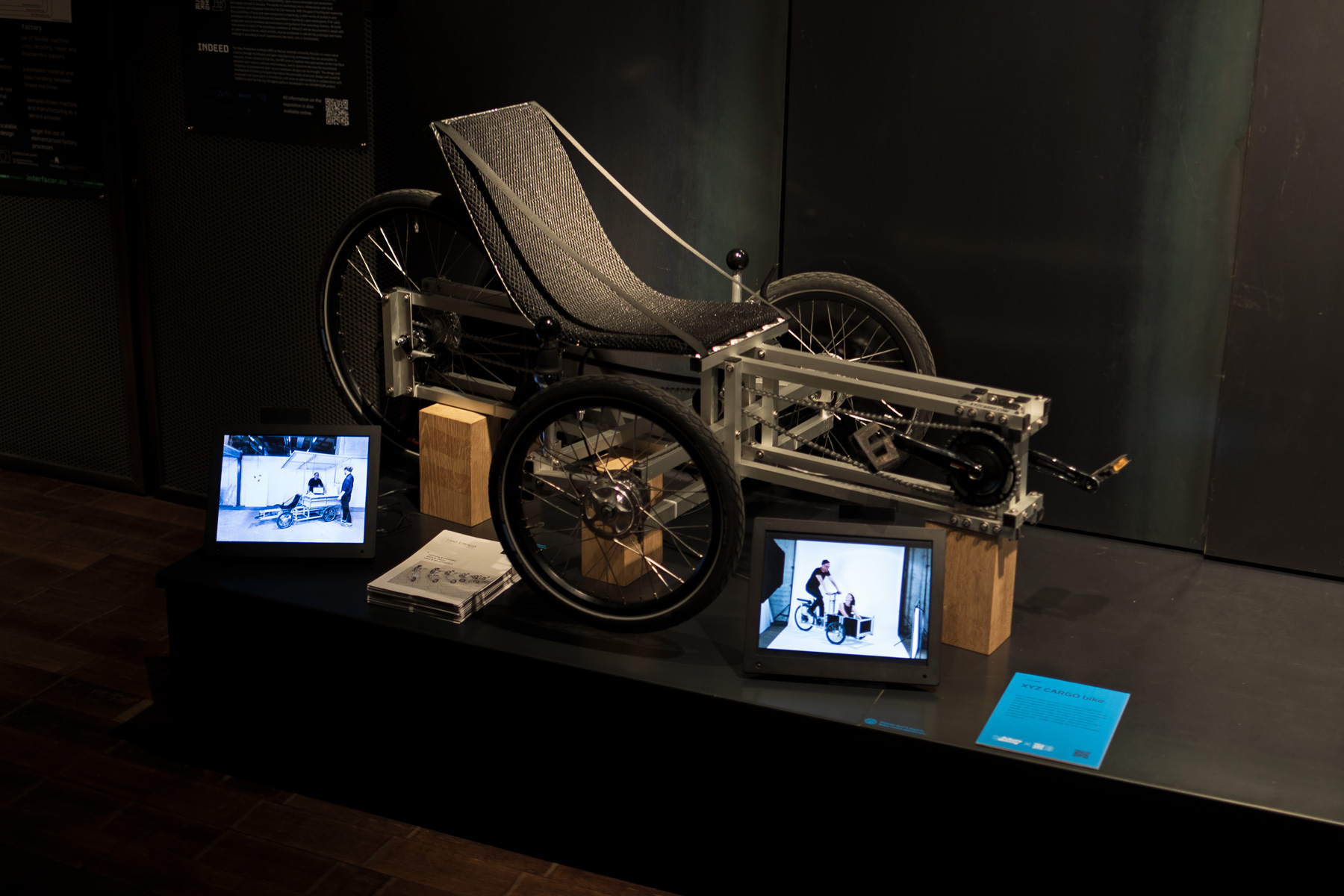
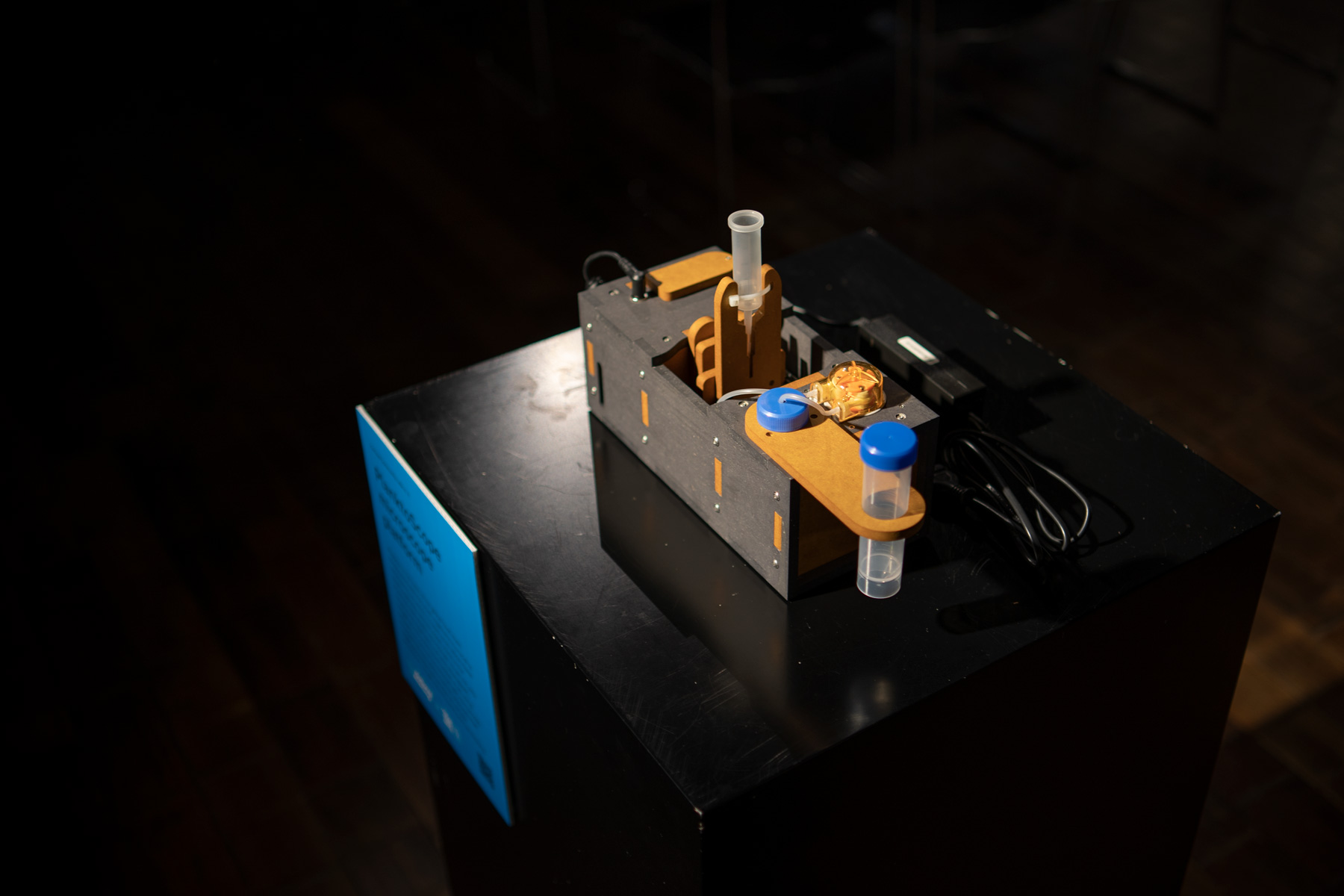
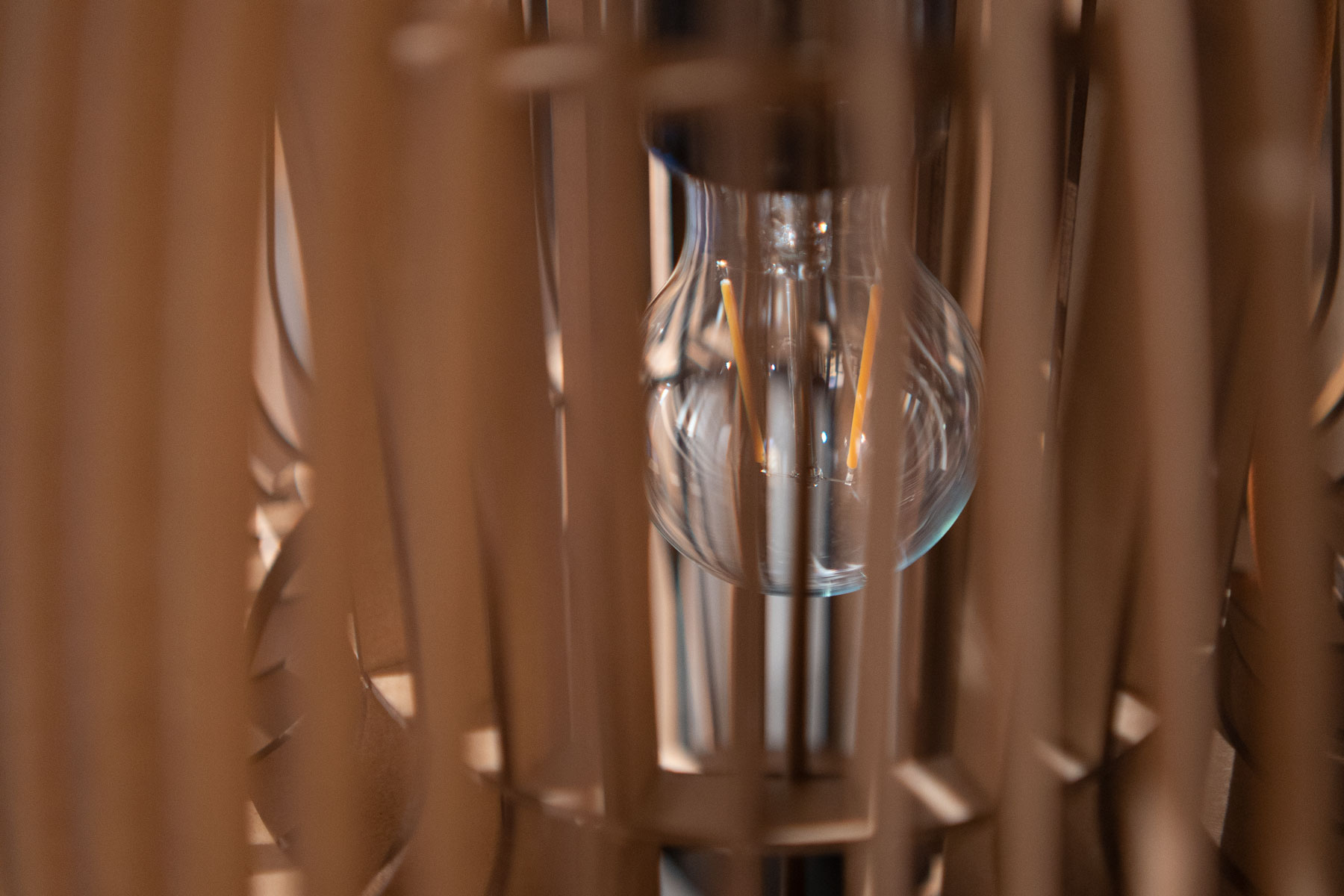
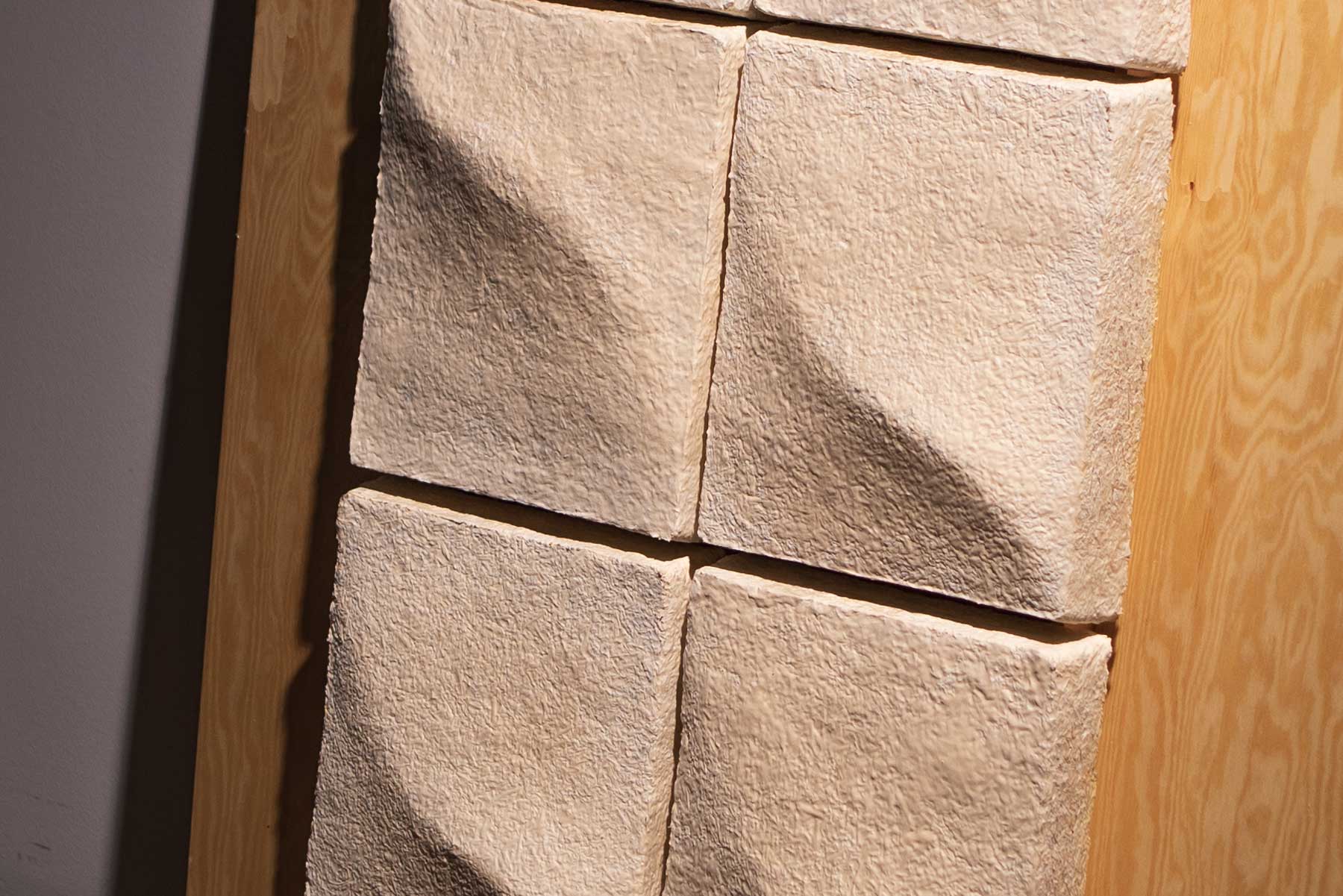
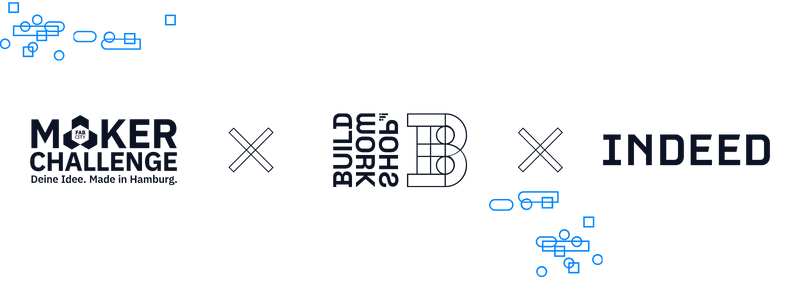
MAKER CHALLENGE
The Fab City Hamburg Maker Challenge is a public ideas competition that called on all citizens of Hamburg and the metropolitan regions in 2022 to get involved in developing and evaluating product ideas that can be manufactured locally in the Fab City Hamburg in the future. A total of 95 ideas were submitted. The Maker Challenge was searching for ideas and concepts for physical products that could be manufactured in a Fab(rication) Lab, providing a social, ecological or innovative benefit. Classic product innovations and functional improvements of existing products could also be submitted. The Maker Challenge was also intended to build up a local community of so-called makers (i.e., people who are able or will be able to independently design, manufacture or repair products). In the future, this innovation community can be involved in finding solutions or generating ideas for specific socially relevant questions or problems in the form of idea competitions via an innovation platform. The Maker Challenge is part of the EU-EFRE project INTERFACER.Exhibits:
“Drinking water from the tap is a luxury that very few people in the world can enjoy. However, solar energy is often available where salt water is present. Compared to a simple solar still, a multi-stage design can significantly increase energy efficiency and thus yield. The same technology is also suitable for the production of high purity water as well as for the concentration of other liquids and can be combined with other heat sources. Our Blue Greece concept has been developed from the beginning by rapid prototyping, so we could find clarity of mission. Many lovely people from different backgrounds and from a wide range of disciplines contributed - but especially from Hamburg and Athens.” (OSH = Open Source Hardware) - Team bluegreece (Spyros, Tom, Simon)
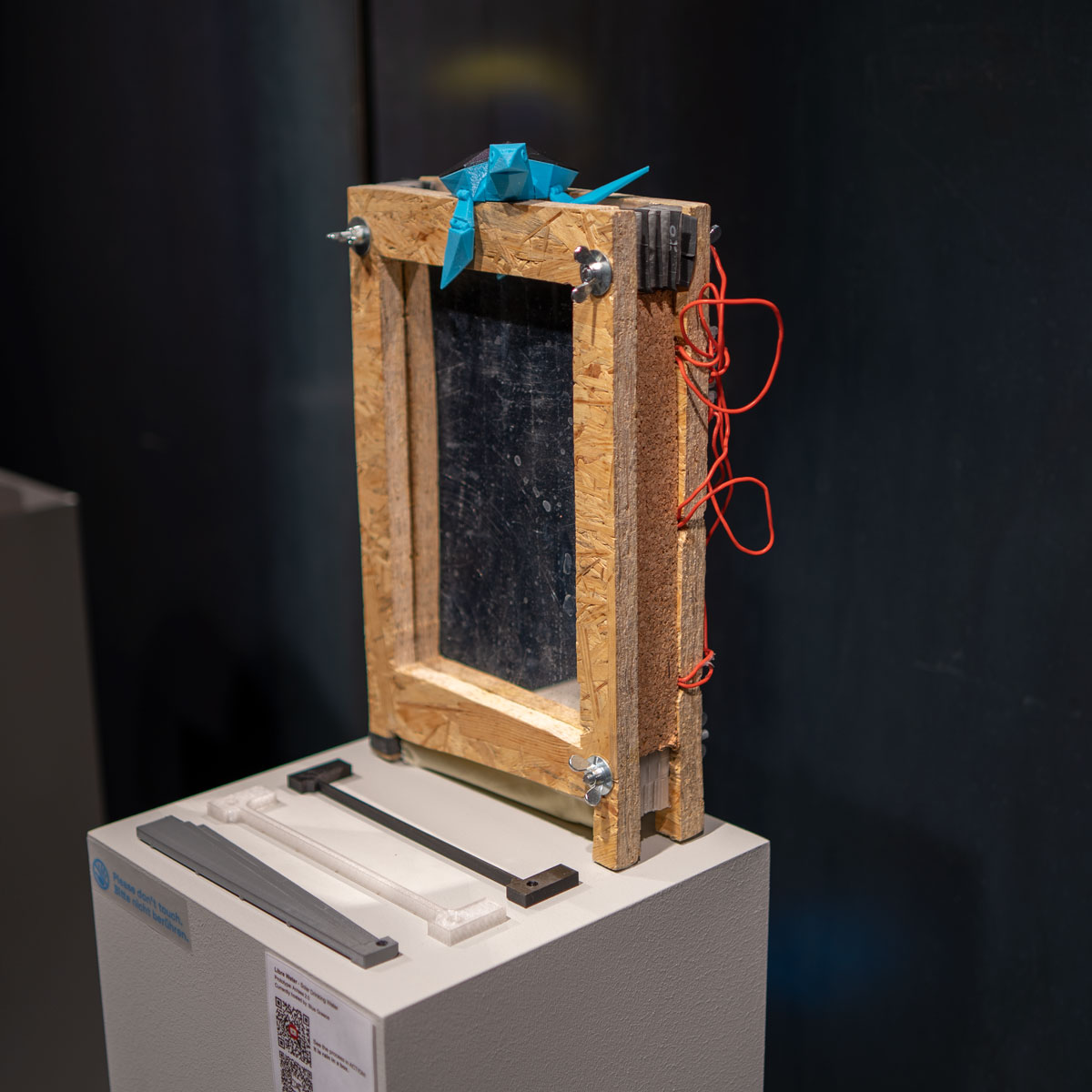
“Shore power plants are multifunctional tidal power plants that can absorb and collect water, wind and solar energy and feed it into the power grid. As the name suggests, these power plants could be integrated on the banks of the Elbe, Elde and other rivers, as well as the existing port infrastructure, without taking up further natural space. For this purpose, ferry piers, jetties and dolphins could be modified or equipped or expanded with power collectors. The basic idea of generating energy without taking up more natural space or polluting the environment in the process is reason enough for me to push ahead with research in this direction.” - Boris Schätzle (Mentor: Jonathan Kröger, Johannes Kriett), Winner of “Sustainable Innovation Award”
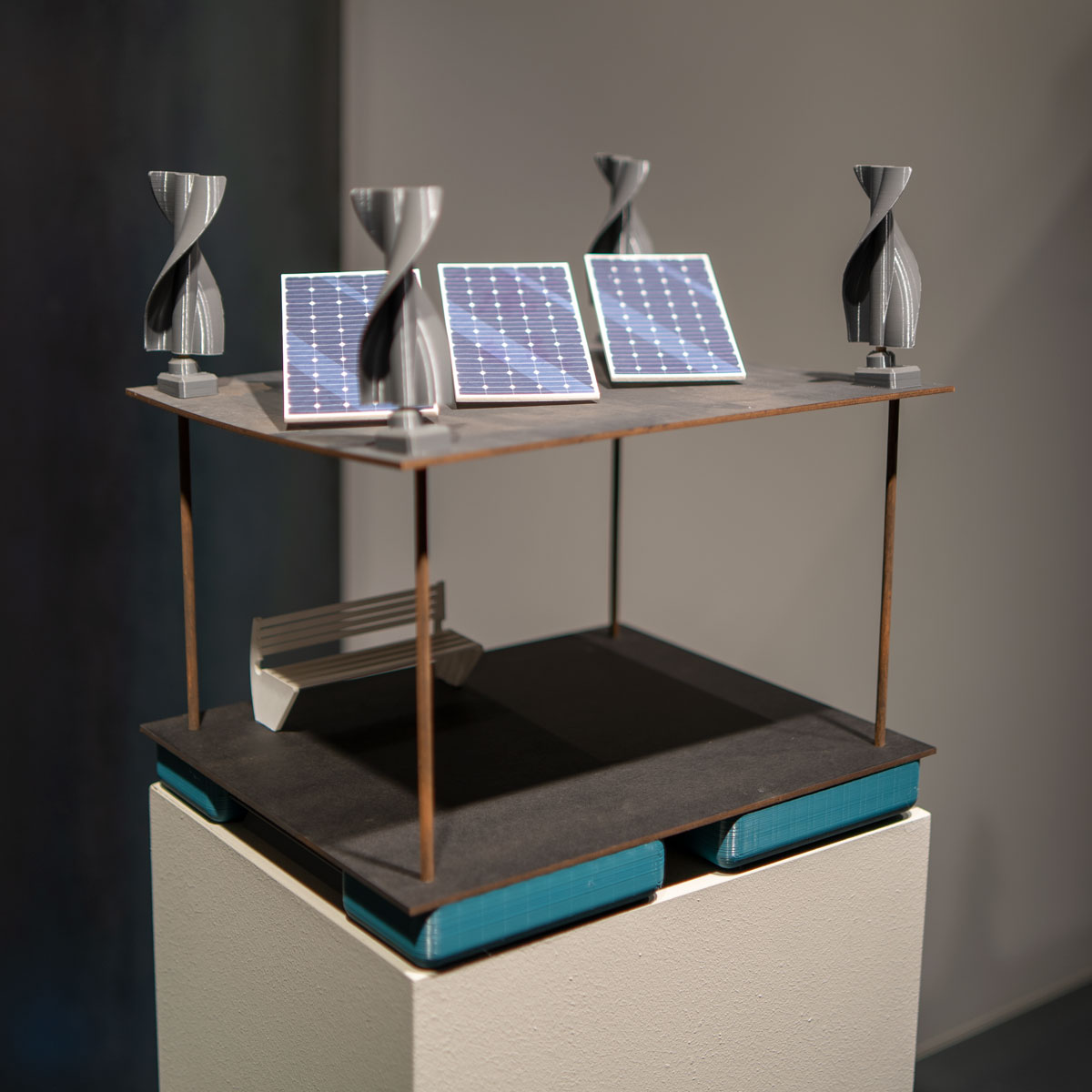
“Thanks to this invention, the conventional refrigerator in Germany can stay off for about half a year. This night cold storage fridge uses the night cold to cool a refrigerator down to 8 °C all day. For this purpose, a pumping system and a micro-controller are used in addition to cooling capacities in the form of containers. This night cold storage fridge is a cooling system that can save up to 90% of the energy of a conventional refrigerator and can also be combined with conventional refrigerators. The night cold storage refrigerator can be operated at 8 °C between November and May in Germany and could also significantly reduce energy costs for cooling in many other areas of the world.” - Jo Jung (Mentor: Johannes Kriett)
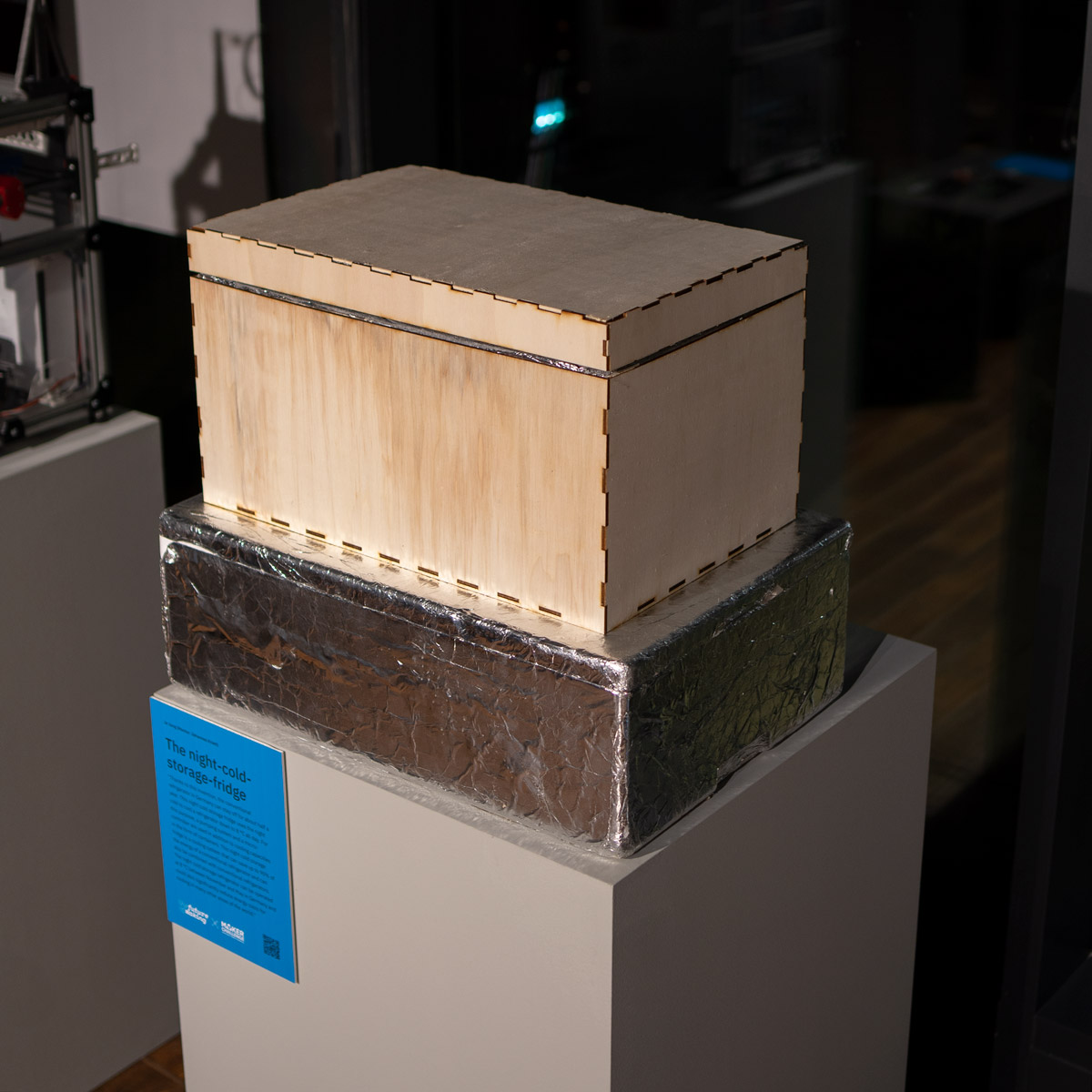
“This is a design of a stair-climbing wheelchair that is intended to make everyday life easier for physically impaired people. Mobility problems when climbing stairs, entering buildings or getting on and off buses and trains can be solved by this, making many everyday things easier. This stair climber makes them more independent of others and gives them more confidence in managing everyday life. Objective of the design of a stair climbing wheelchair: inexpensive to manufacture, small additions to a normal wheelchair required, it can be attached to or detached from a wheelchair” – Alireza Abbasimoshaei (Mentor: Johannes Kriett), Winner of “Social Innovation Award“
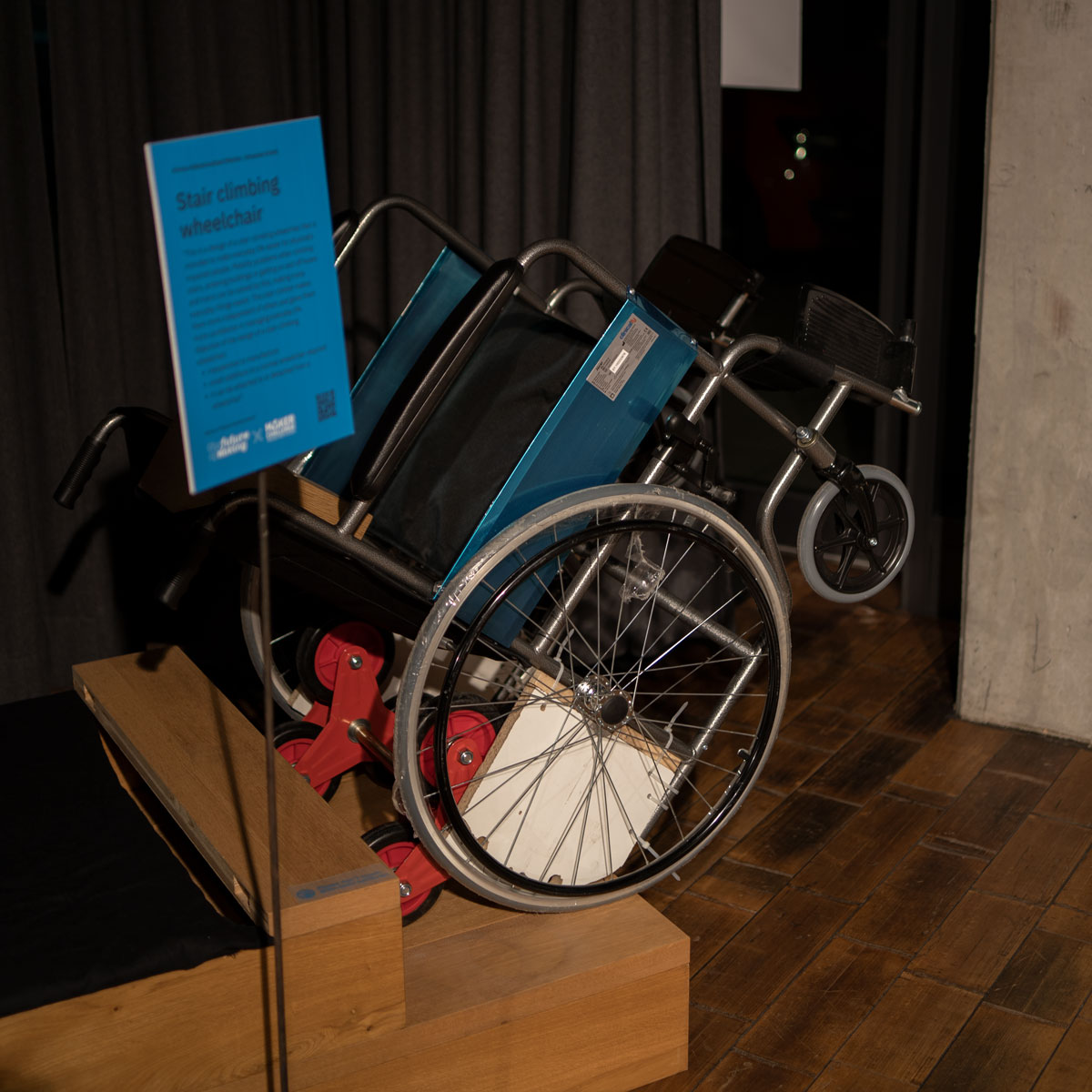
“Your ideal drinking water bottle for clean and safe water outdoors. Filter your water anywhere and anytime! Take it with you hiking, trekking or even to a remote campsite where drinking water supply can be a problem. The goal is to change the accessibility and ease of getting drinking water also in developing or third world countries, anytime, anywhere! Our solution focuses on both filtration technologies in a single product. You have an activated carbon filter that filters out sediment, particles and heavy metals as well as chlorine. To assist, there is also a UV light mechanism that can eliminate bacteria and micro-organisms that can cause illness. Travelers, hikers and adventureres will love this all-in-one solution!” - Team Suve Nisa Ramakrishnan (Suve Nisa Ramakrishnan, Varun Gonsalves und Rijuta Bagchi | Mentor: Sebastian Beckhaus Behncke)
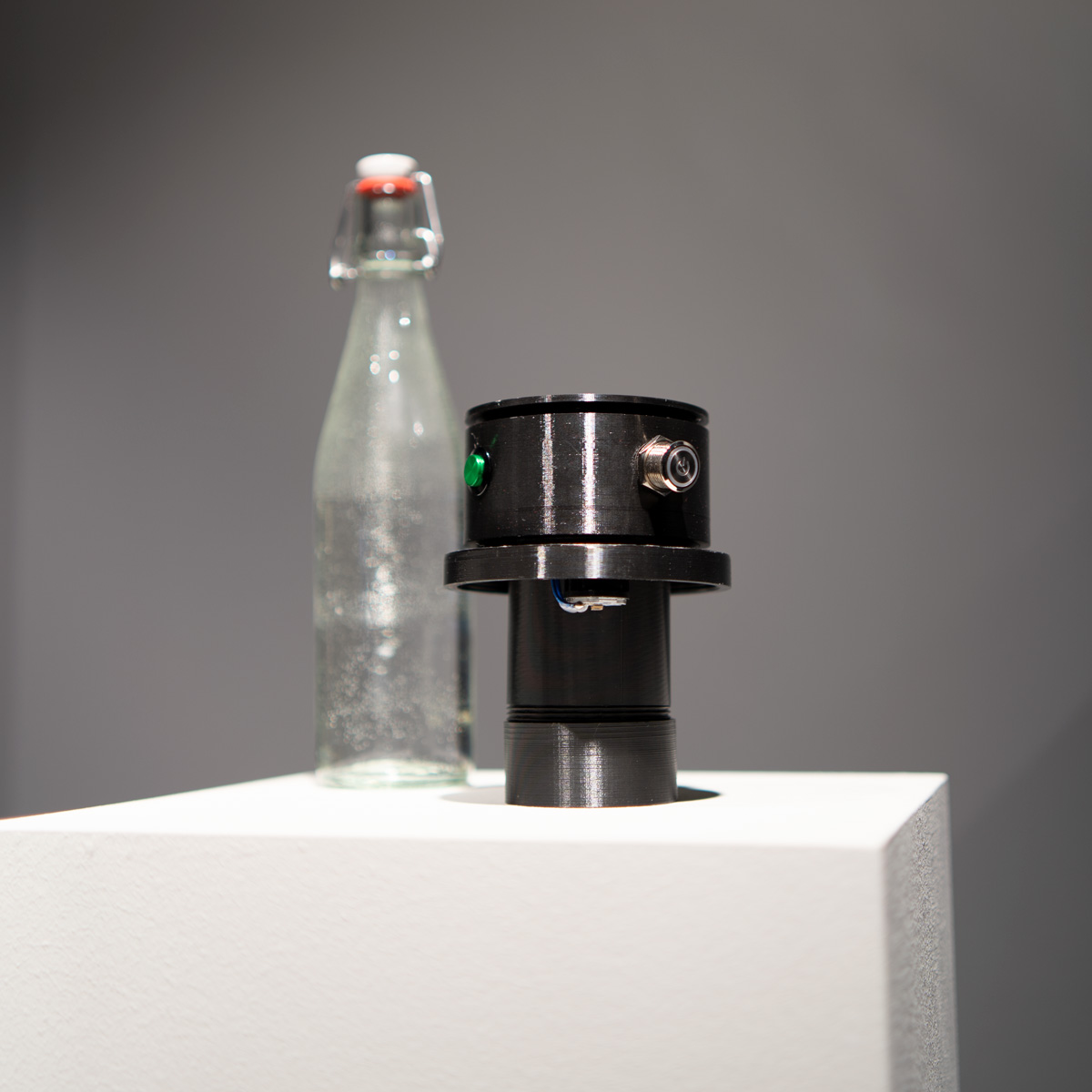
“This idea came to me, when I was dealing with the issue of agriculture and its high water consumption. The solution: Hydroponic from Hamburg - Growing healthy and vigorous plants with minimal water consumption. Without pesticides. In any season - Even in space. A commercial tomato from the supermarket (about 250 g - 350 g) consumes about 13 liters of water until maturity. In conventional agriculture, only about 3-6% of the water used gets into the plant itself. The rest seeps away and evaporates. With hydroponics, on the other hand, about 90-92% of the water used is absorbed by the plant. My goal is the construction of a modular system, which can be built by anyone interested.” - Sebastian Beckhaus Behncke
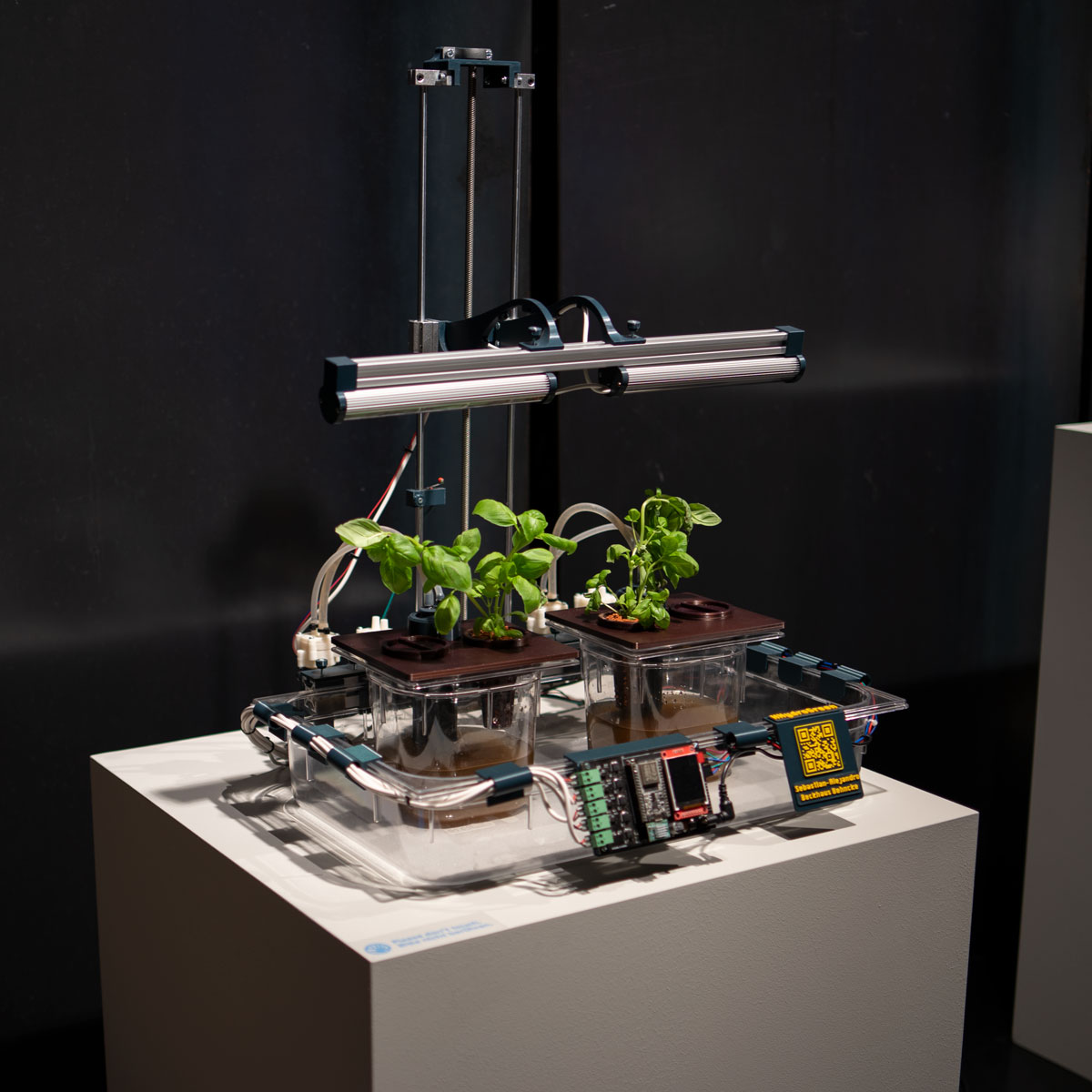
“Surface paving is a condition for the development of areas that are to experience intensive use by humans and livestock. The solution: gridded modular slabs made of recycled plastic, which look similar to grass pavers and can be used for surface paving. Their differences are, firstly, the use of recycled plastic, and secondly, the fact that they do not require the removal of soil, compaction of the subsoil, or the addition of sands or gravels to pave the surface. Many advantages for ecology and economy join their wide use. Products as described here already exist. But they have - visible for all of us - not yet triggered a mass effect. This is something I would like to change.” - Thomas Wagner (Mentor: Johannes Kriett)
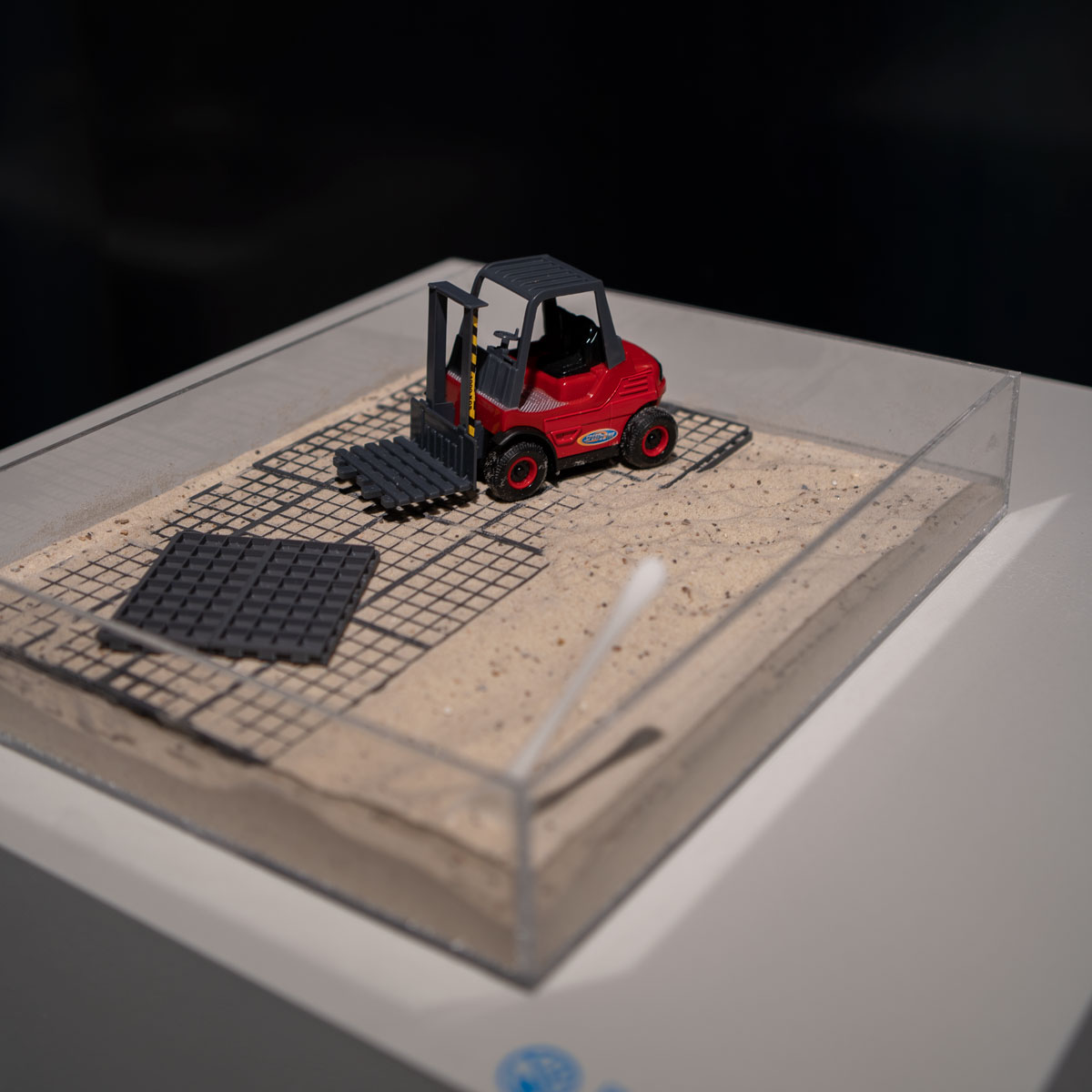
“The average annual consumption of coffee in Germany is 166 liters per capita. After a coffee is brewed, the leftover coffee grounds are thrown away. This results in over 20 million tons of coffee grounds going into the garbage in Germany every year. But for us at Coffeecycle, it is precisely these coffee grounds that are too good to be a waste product, which is why we recycle them and use them to make our natural cosmetics and their packaging. Should we manage to use the coffee grounds in the packaging as well, our recycling rate would increase significantly and we could make the first cafés free of their coffee waste. We are already planning new products with recycled coffee grounds as additive.” - Team Coffeecylce (Leonhardt Mücke, Liam Metzen | Mentor: Marc Görlich)
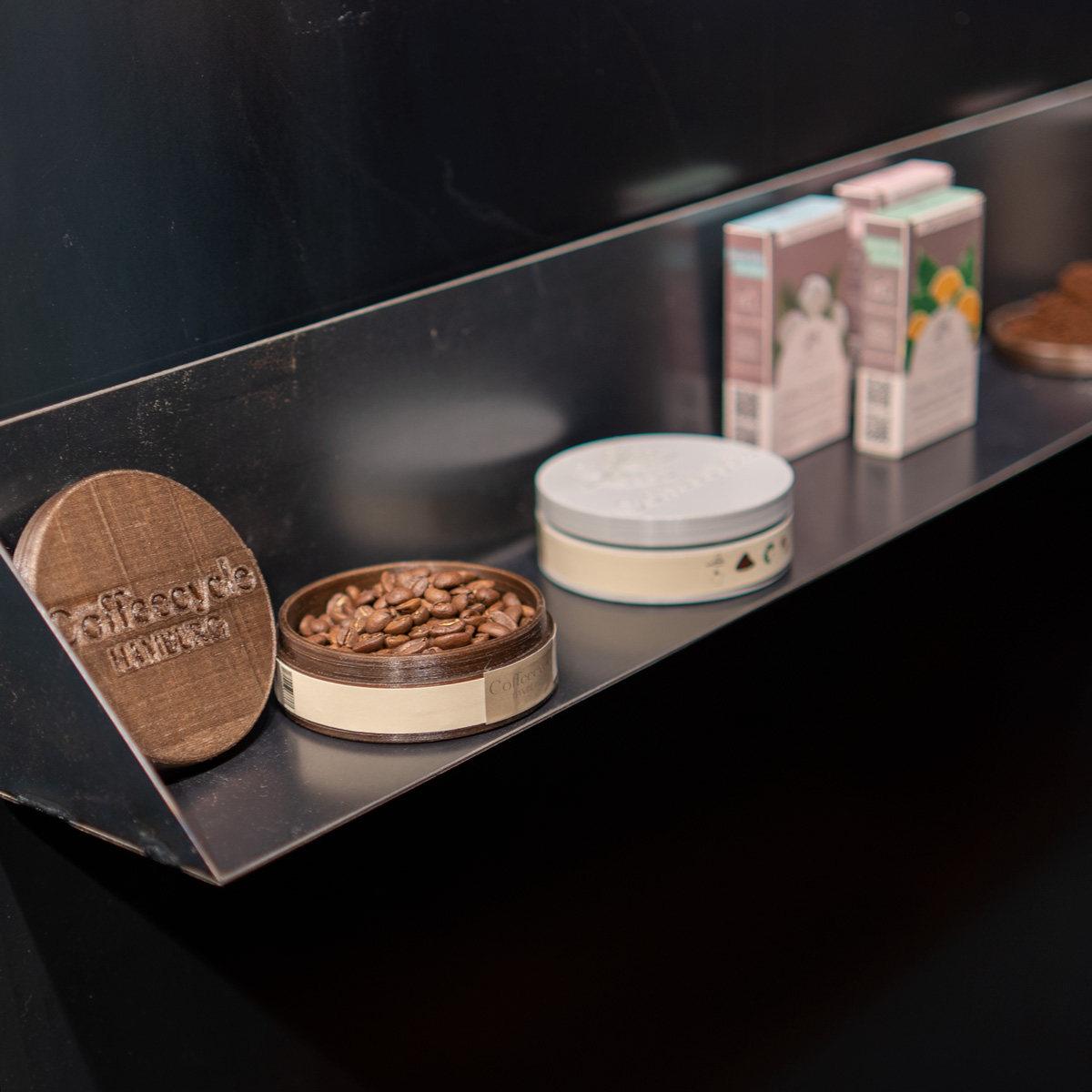
“What does a product need to develop and improve? A functioning, creative, qualified, great team! But how does such a team come into being? The foundations are laid in childhood, at home, with friends and at school. This is where my project comes in. I want to inspire children and young people to work together creatively with a simple, smart, practical and inexpensive greenhouse design for the school garden. In addition, the greenhouse can be constantly expanded and improved. I envision a greenhouse working group in which students from different grade levels manage their own project as independently as possible. Their work can be accompanied and supported by FabLabs.” - Leven Hennig (Mentor: Werner Jarmatz), Winner of “best student project”
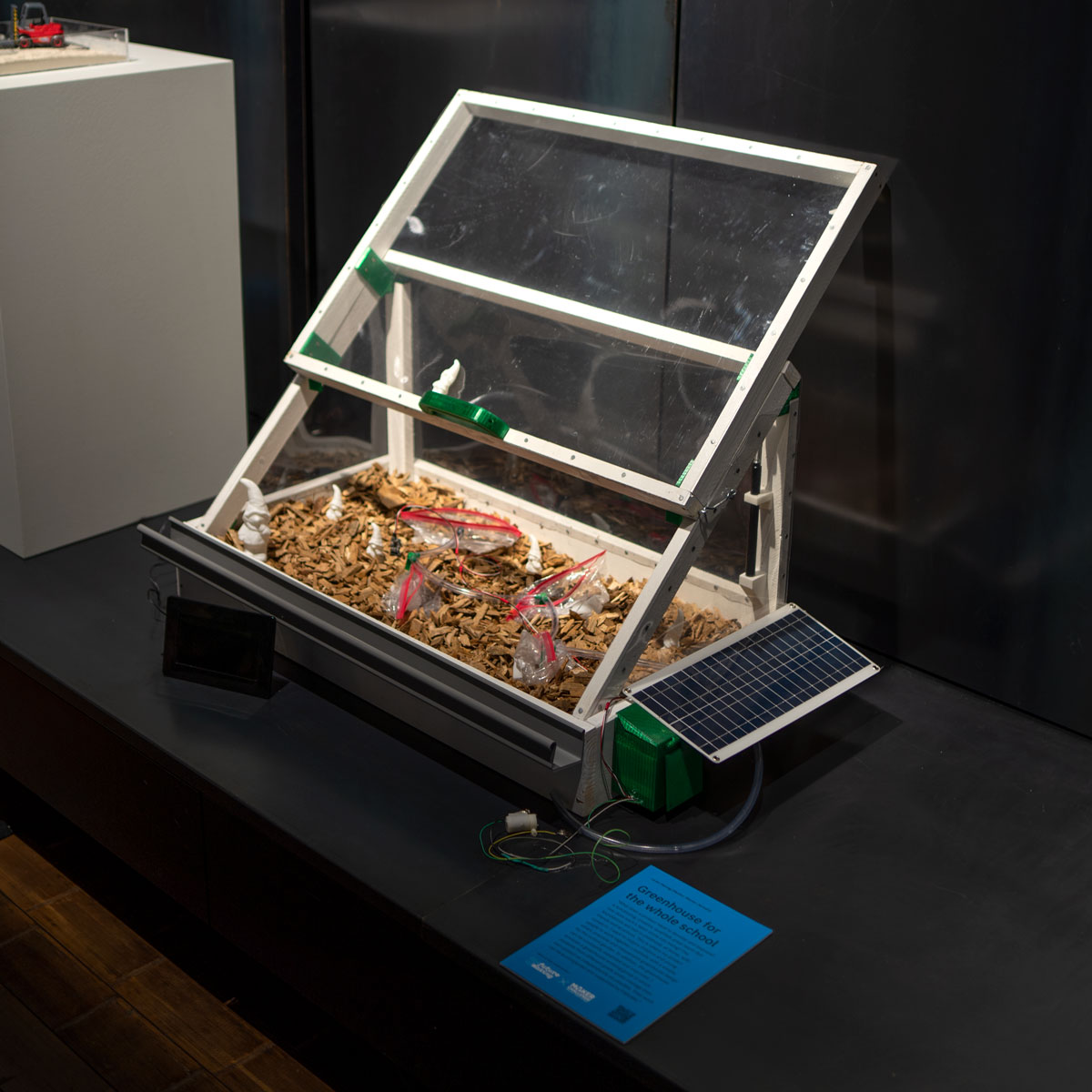
“You all know it! You hang a dress, shirt, or something similar on a hanger and it slips right back down. It just does not want to hold. But we have the solution! Our product is a hanger where you can change the span of the hanger. This allows you to hang all tops, whether small or large neckline safely. To ensure that everything holds well, we have included two features. First, an anti-slip material that is located on different parts of the hanger. And secondly, the hanger consists of several segments, the last of which can be rotated around its axis so that the bent ends point upwards. The simple structure makes our product suitable for everyone, big or small, old or young.” - Team Carla (Realization: Oskar Lidtke)
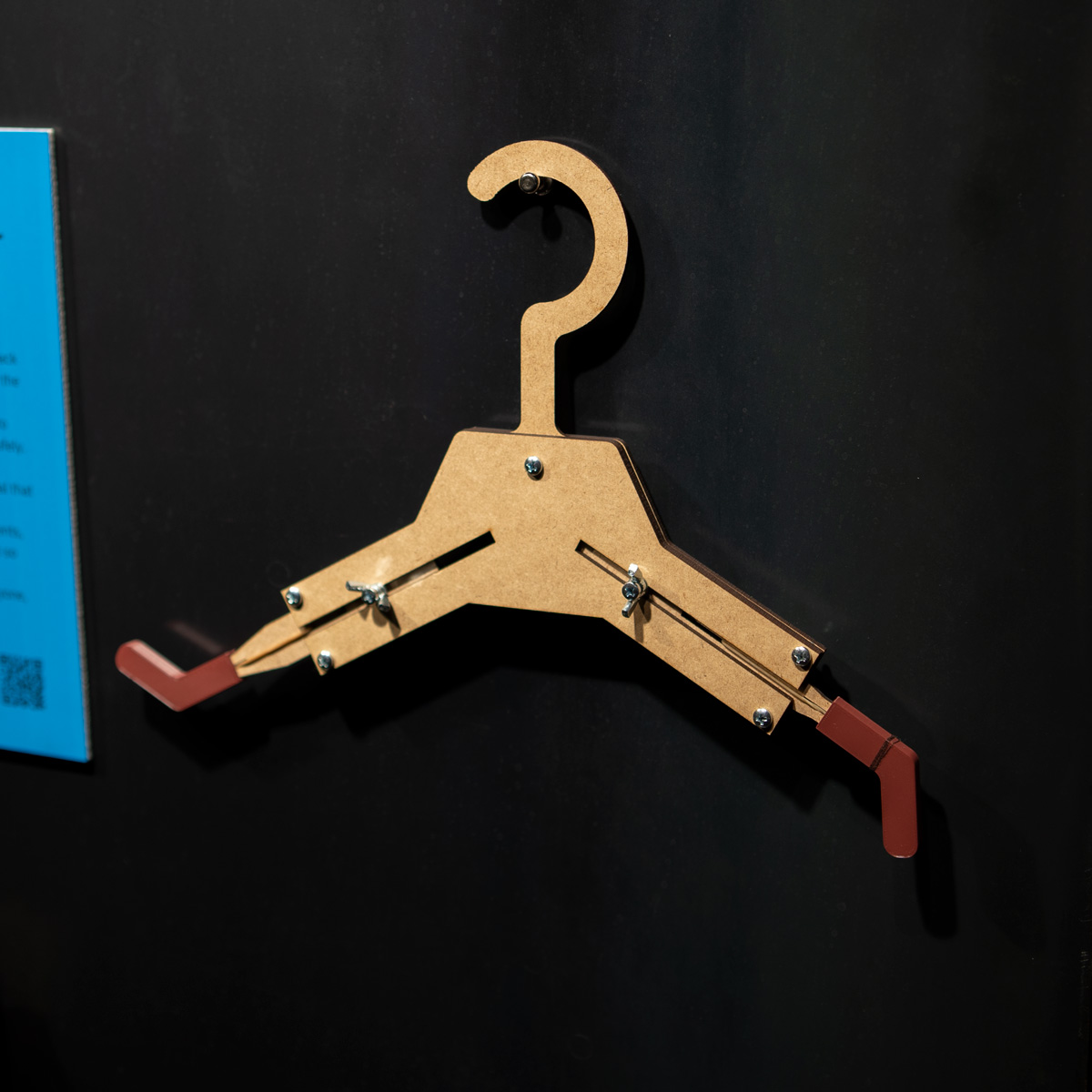
“With the help of the community advertising pillar, a district/neighborhood is given the opportunity to provide information from the diverse civil society as well as hyperlocal user-generated content situationally in the public space - by citizens for citizens. People get a public digital place, a channel that is inclusive on- and offline! The digital infrastructure is supported, designed and regulated by local actors on a commons principle. Taken together, the product is also a bridge between digitally affine citizens and those who have had little contact with digital communication.” - Team Buewi (Timo Gorf & Team | Mentor: Werner Jarmatz)
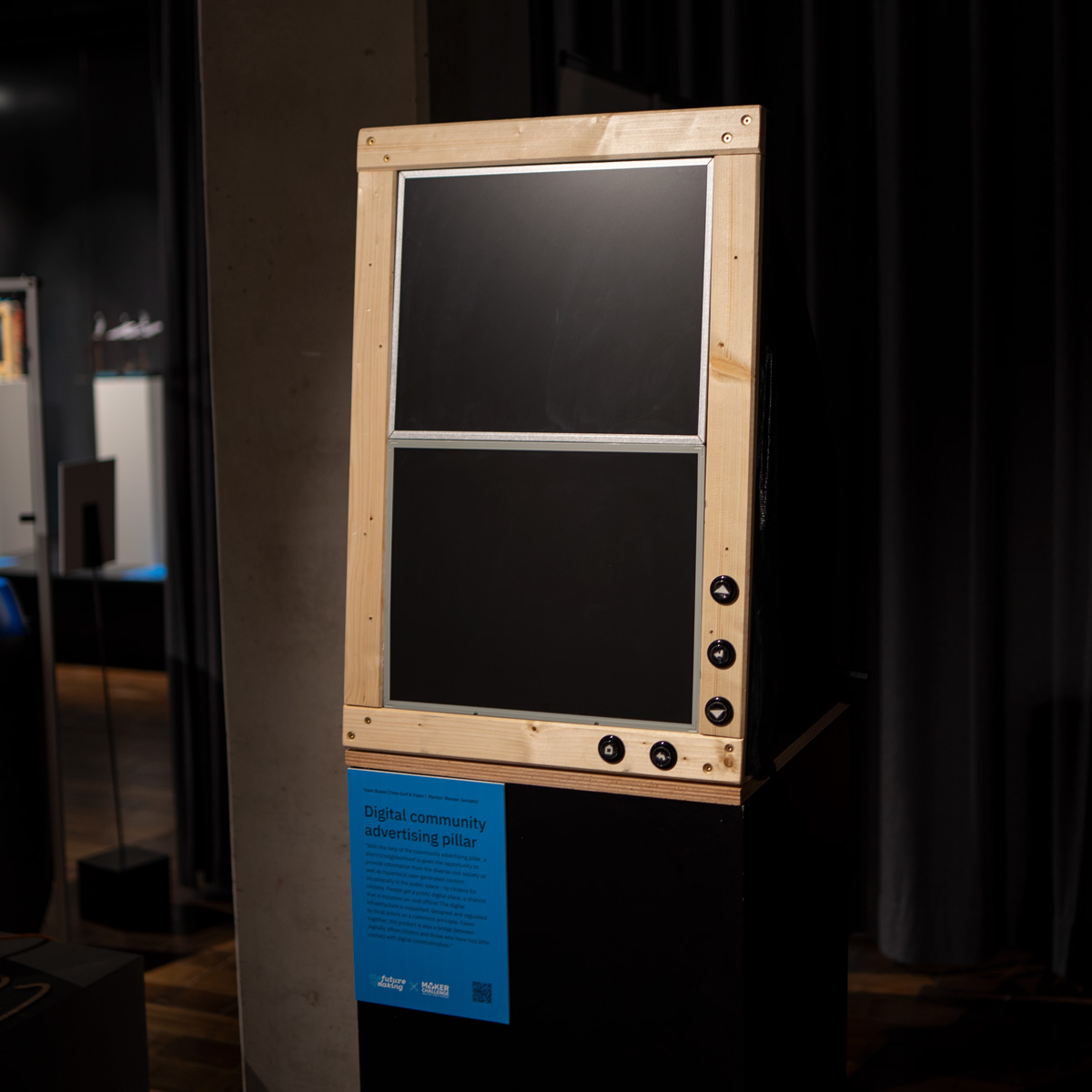
“Do you also always have the problem that your plants die or seem to thrive poorly - but you can not identify what it is? Or are you going on vacation and do not know who should water your plants? Then we have the perfect solution for you! Our little plant helper is there to show you specifically the problem of your plant and also (in the pot) to water the plant with the perfect amount of water. Our Little plant helper is integrated into a flower pot or to stick into the ground. It is to analyze the soil, the roots of the plant, etc. and then display on a screen the problem of the plant. Thus, gardening is a breeze for everyone!” - Team Louisa (Realization: Sebastian Beckhaus Behncke)
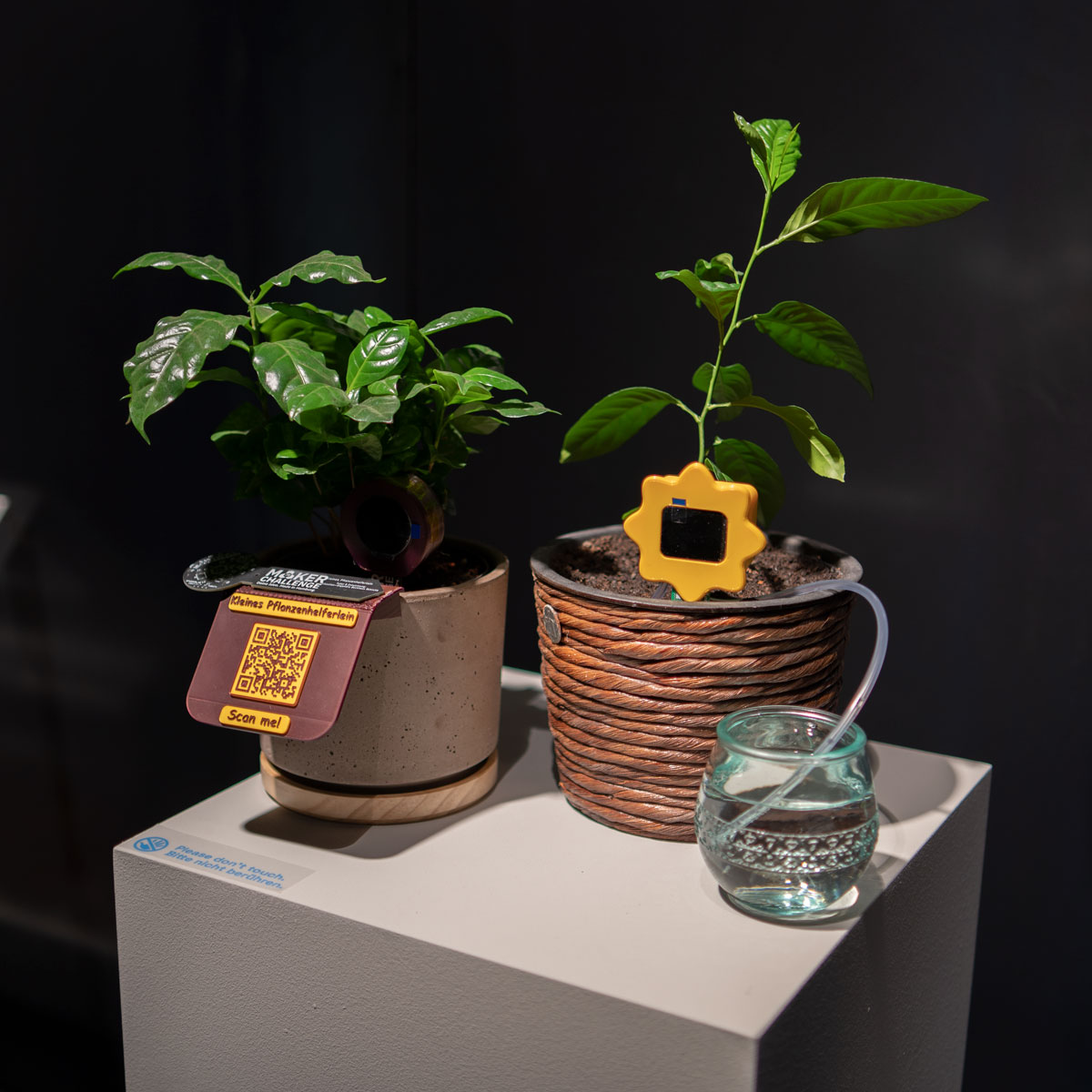
“The idea behind my coat hook was to create a hook that is not only useful, but also gives the user a little pleasure. Therefore, I came up with a plug-in hook that is easy to assemble without tools or glue. In the front area can be hung not only the jacket or scarf, but under it also equal to the apartment or car keys, so everything is quickly and at the same time ready to hand for everyday life. Due to its extremely flat pack size, the hook can be sent in an envelope inexpensively and thus also saves expensive packaging when giving away. In addition, the coat hook can also be personalized by placing your initials in place of the key hook.” - Maxim Etienne van der Molen (Mentor: Oskar Lidtke)
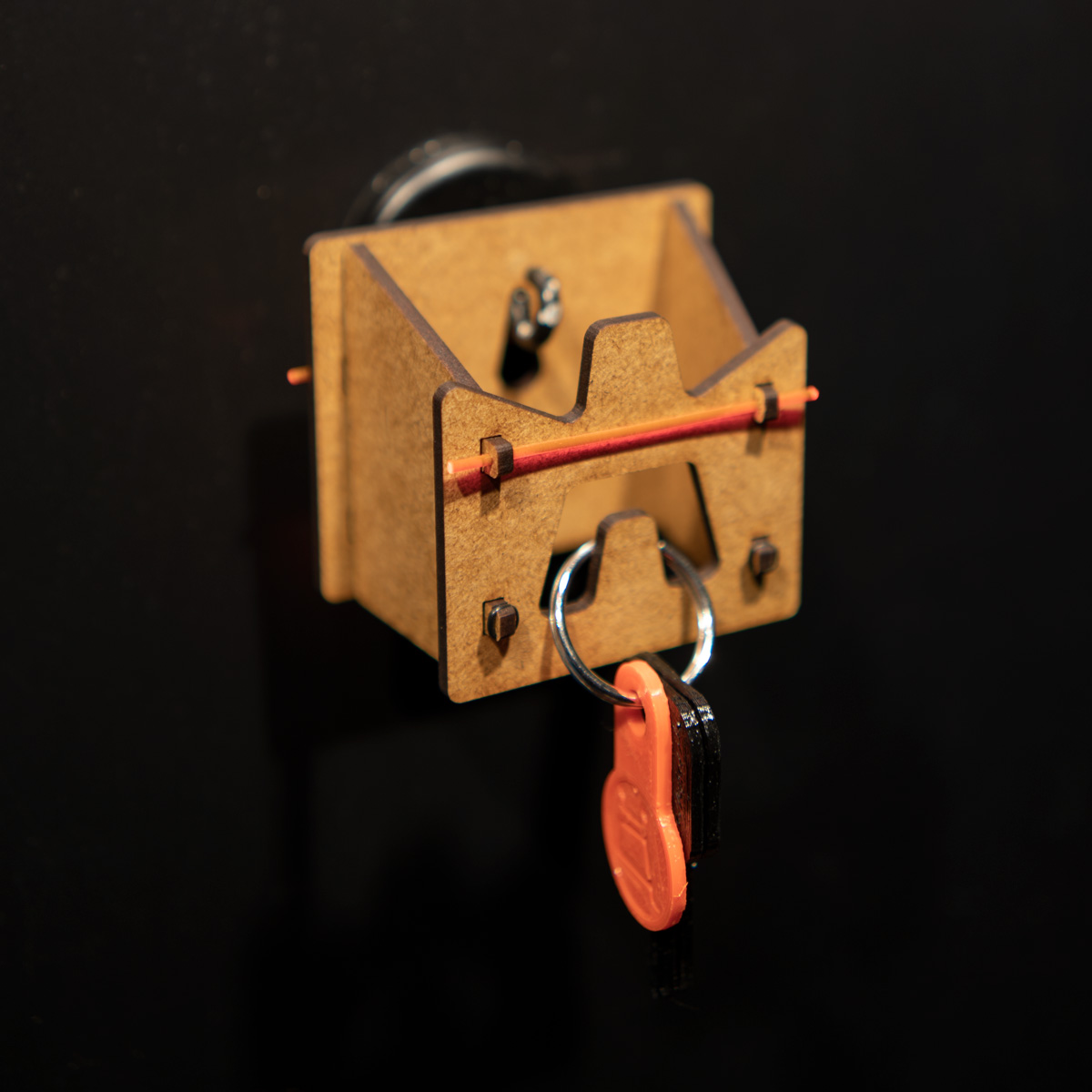
“At the beginning, the mission was to introduce students to 3D printing as part of a one-day event. We wanted to avoid creating lots of plastic scrap in the process. So we developed parts that are easy to understand and easy to build, and that we can use in the long term and be versatile. From cubes, rods and plates we can quickly build useful things, such as a computer desk, a coat rack or a hanging file. All products we can always change, improve or disassemble when we don’t need them anymore. A modular system is better the more people use it. In this way, we can exchange parts and ideas and together save on waste and emissions. In this sense: use it, improve it, share it!” - Jonas Wagner (Mentor: Oskar Lidtke)
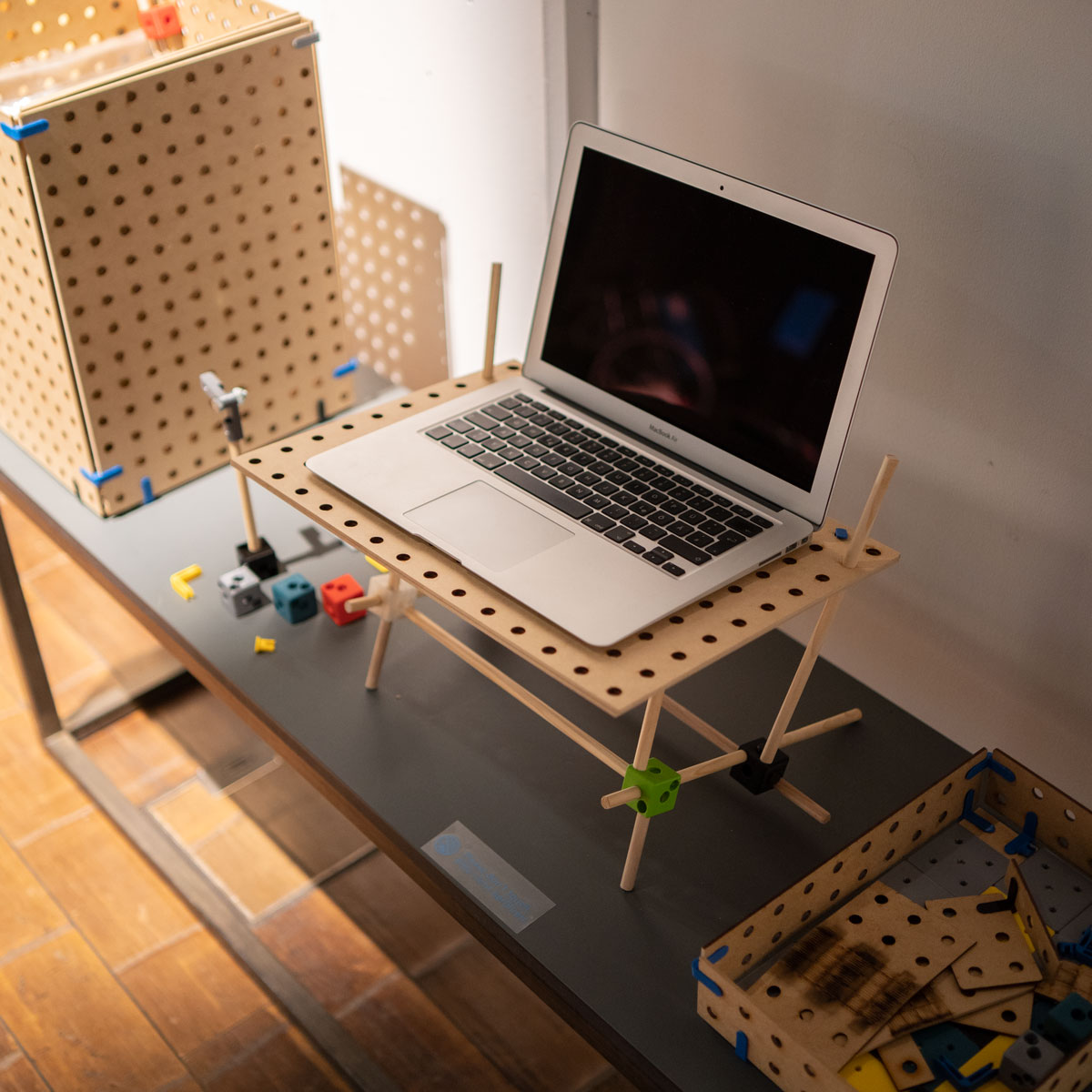
“Longer hair tied in a high braid, braided pigtail or special ponytail, and then riding a bike. Not wearing a bike helmet to protect your hairstyle can be dangerous. That’s changing now. The P-TailMet (made from Ponytail and Helmet), has a built-in braid hole through which you can pass your longer hair. There will no longer be a “bad hair day” for female cyclists with longer hair. So, with embellished hair and wearing a helmet, you’ll be safe on the roads and mom will be reassured.” - Team Pia (Realization: Johannes Kriett)
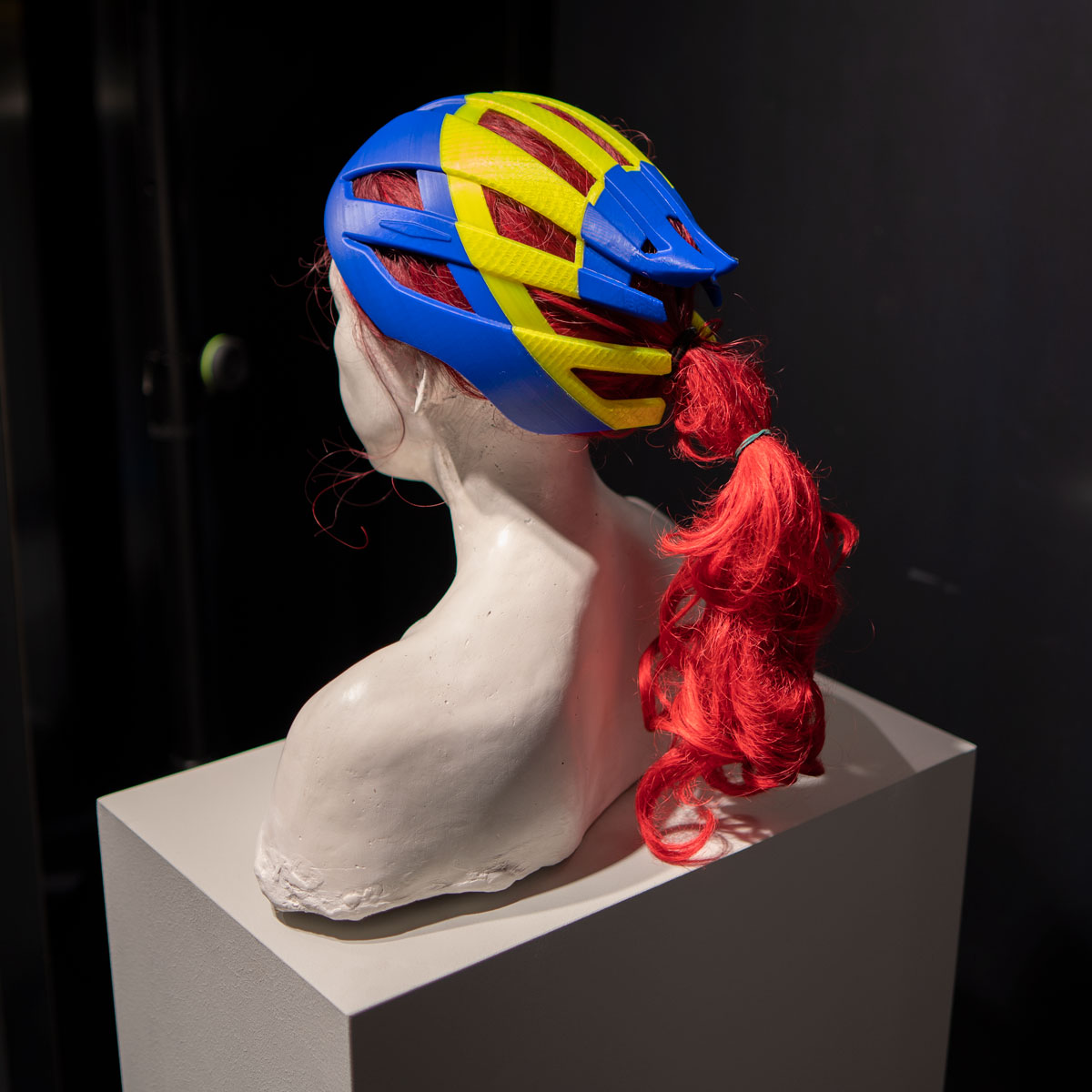
“A scooter that reinvents the wheel - designed for cycles. All components can be recycled as often as desired into new parts - and all within Hamburg! Recyclable plastic parts from the laser cutter, 3D printer, the CNC mill as well as versatile reusable aluminum parts. Clear building instructions, color/pattern variations and individual modules make it an easily repairable, long-lasting companion for young and old, including schools and businesses. Most importantly, a pedal scooter is a popular product that numerous children and adults in the big city enjoy using for daily transportation. Replacing the conventionally manufactured scooters with sustainable alternatives offers a big potential.” - Oskar Lidtke
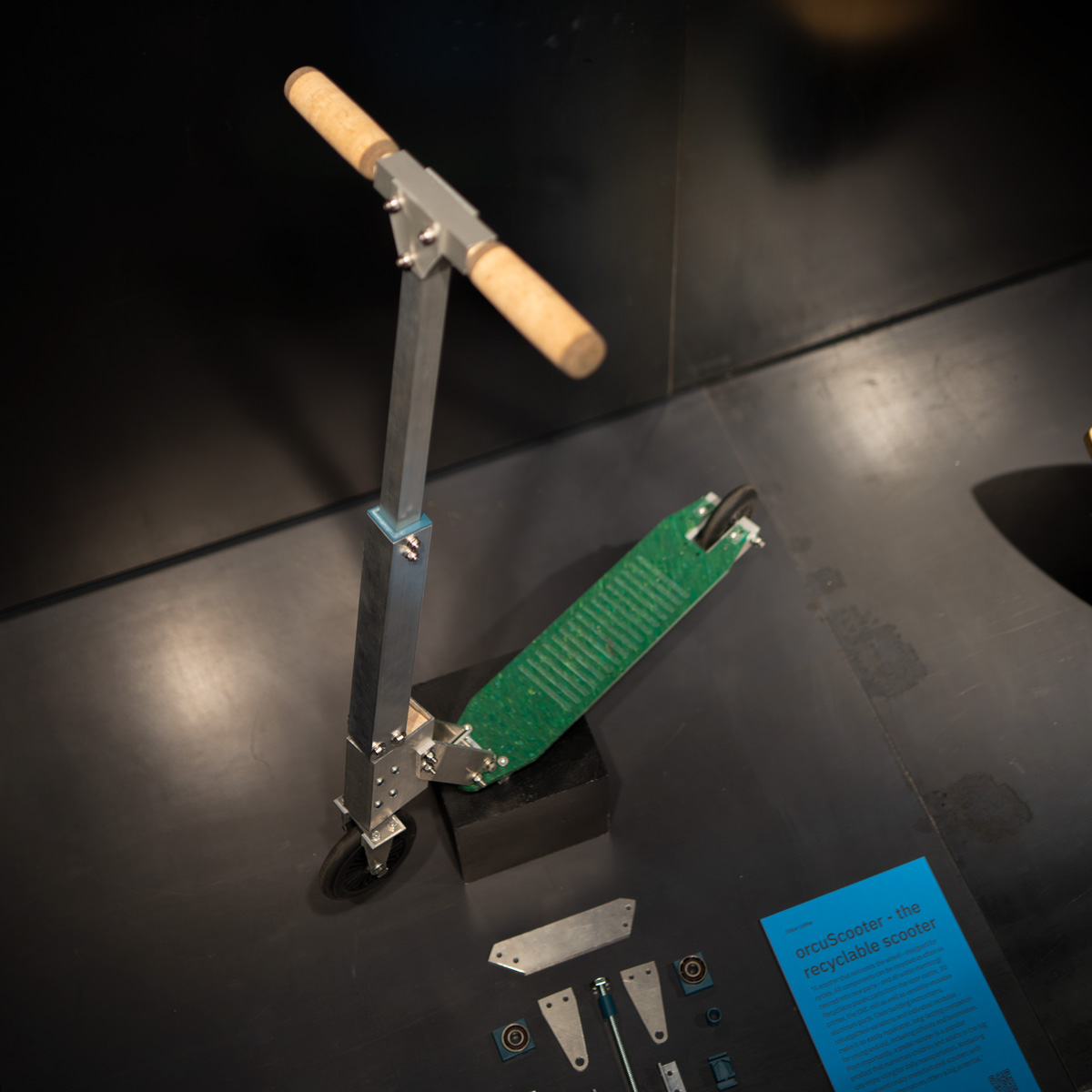
More about the series:
BUILDWORKSHOPS
“Building for all” - with this motto the three-month free workshop series of the EU-EFRE funded INTERFACER project on sustainability, open-source principles and production techniques started in January. The hands-on workshops are a collaboration with local associations and companies from the Fab City network. With the goal of testing and exploring the possibilities of local and open production in Hamburg, a wide variety of products and prototypes will be manufactured and assembled in Hamburg’s open workspaces (Fab Labs) using open-source hardware documentation and guidance from workshop trainers. All build instructions for each of the prototypes exhibited at #tfom23 will be documented in detail with an open-source license, which entitles anyone worldwide to rebuild the prototype and freely redesign it according to local requirements like taste, size or functionality.Exhibits:
This acoustic absorber is made of composite material of residual materials and mycelium, a „mushroom mesh“, and is produced in a sustainable upcycling process over several weeks. As a result, there are better room acoustics by absorbing room sound in different frequency ranges. The ingredients are exclusively compostable and pollutant-free materials without additives such as adhesives. - Curious Community Labs e. V.
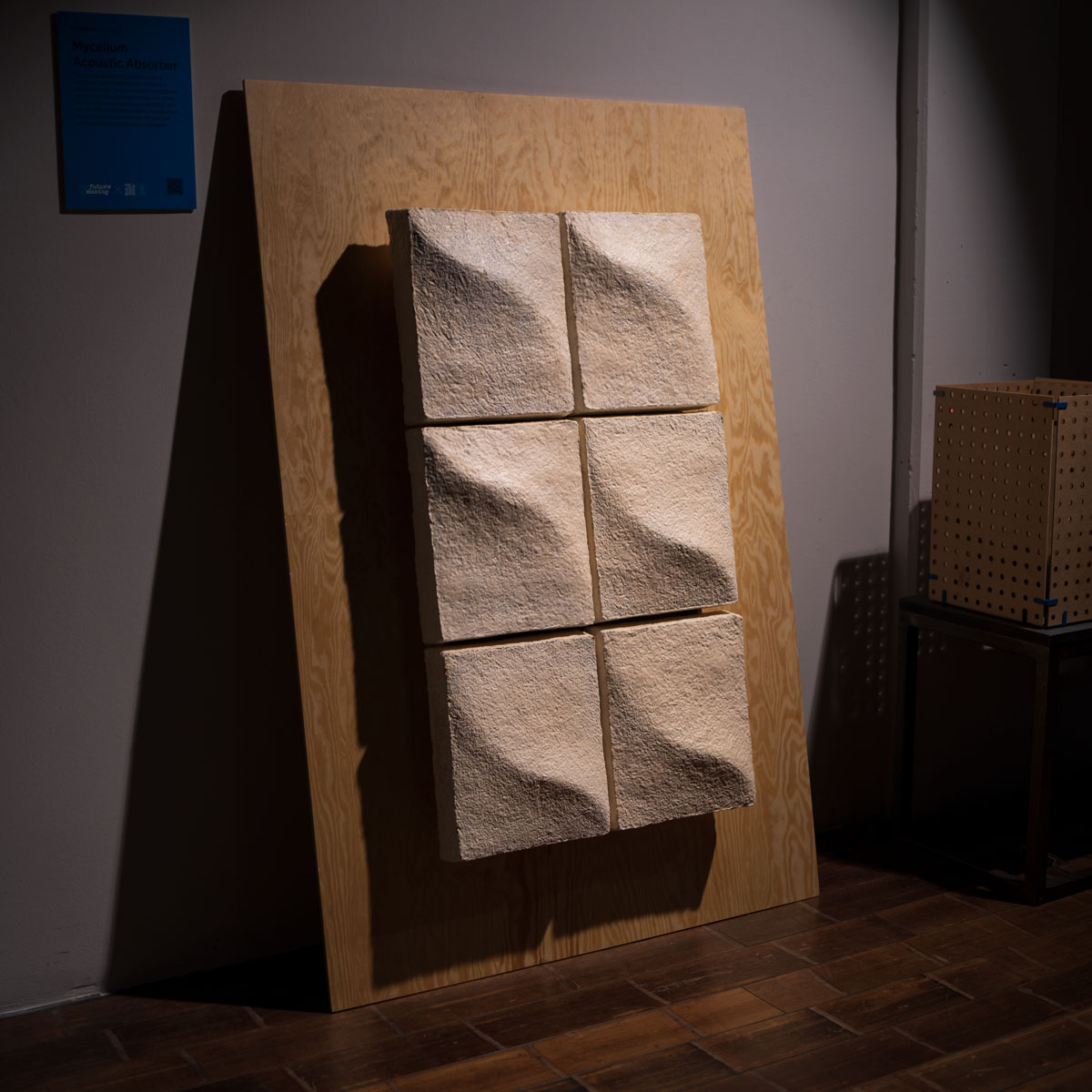
The Libre Solar Box is a solar-powered energy storage system consisting of a boxframe, battery and charge controller, developed as open source hardware. The Solar Box can be used as an independent renewable energy supply for consumers such as music, lighting and laptops, and demonstrates on a small system how a renewable energy supply with photovoltaics works. The goal with this open source energy storage is to transfer the understanding to larger systems and thus contribute to the energy transition. - Fab Lab Fabulous St. Pauli e.V.
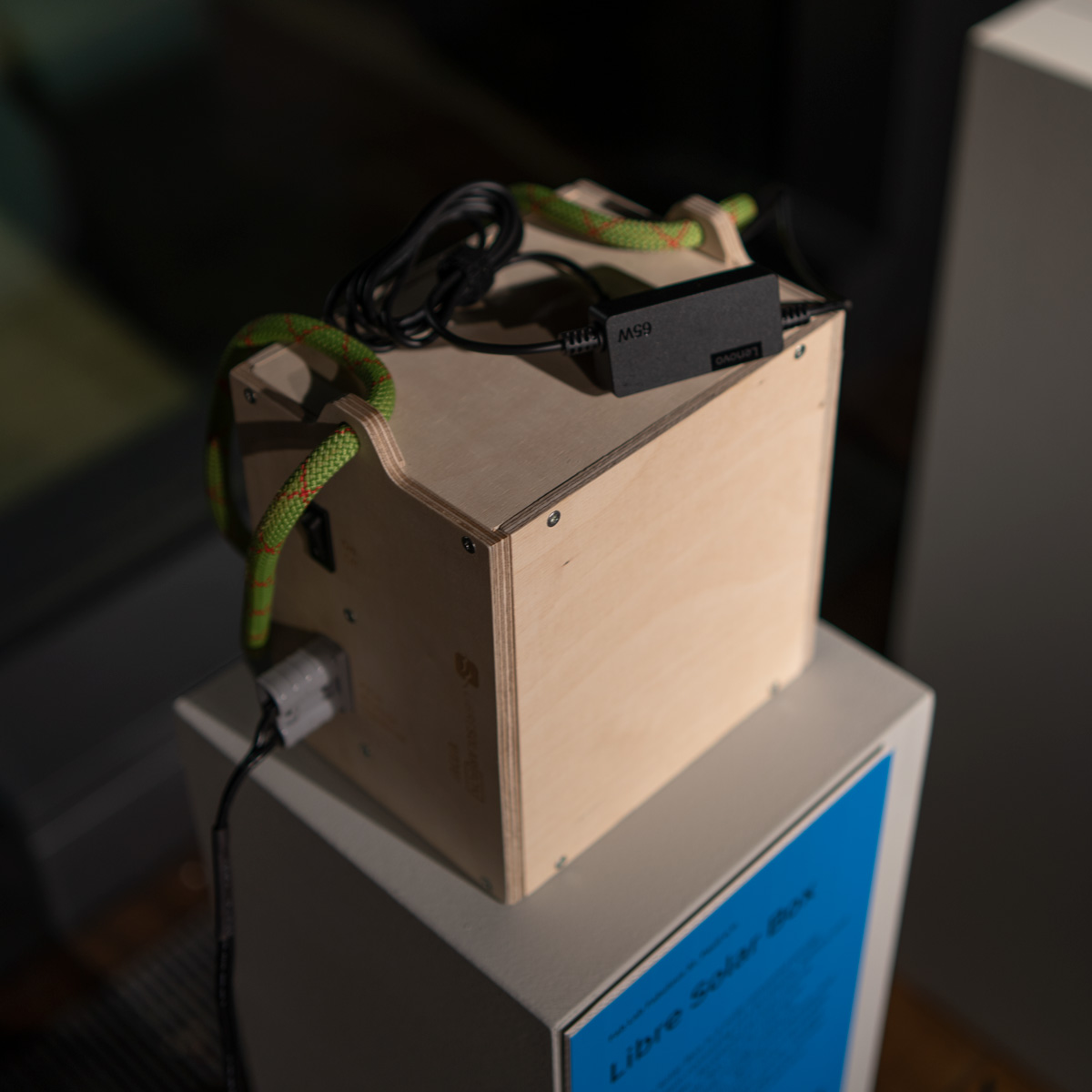
The Electrochemical Compact Lab (short ELCH) is a compact laboratory and a by-product of the “Clean PCB” research group at Fab Lab St Pauli, which deals with copper recycling in PCB (printed circuit board) production. The ELCH is an all-rounder whose main function is to pump liquids between different containers or to mix them in reaction vessels. Reaction processes are monitored with a flow photometer, a voltage source for electrochemistry can be controlled, and even heating elements and temperature sensors can be connected to the compact lab. - Fab Lab Fabulous St. Pauli e.V.
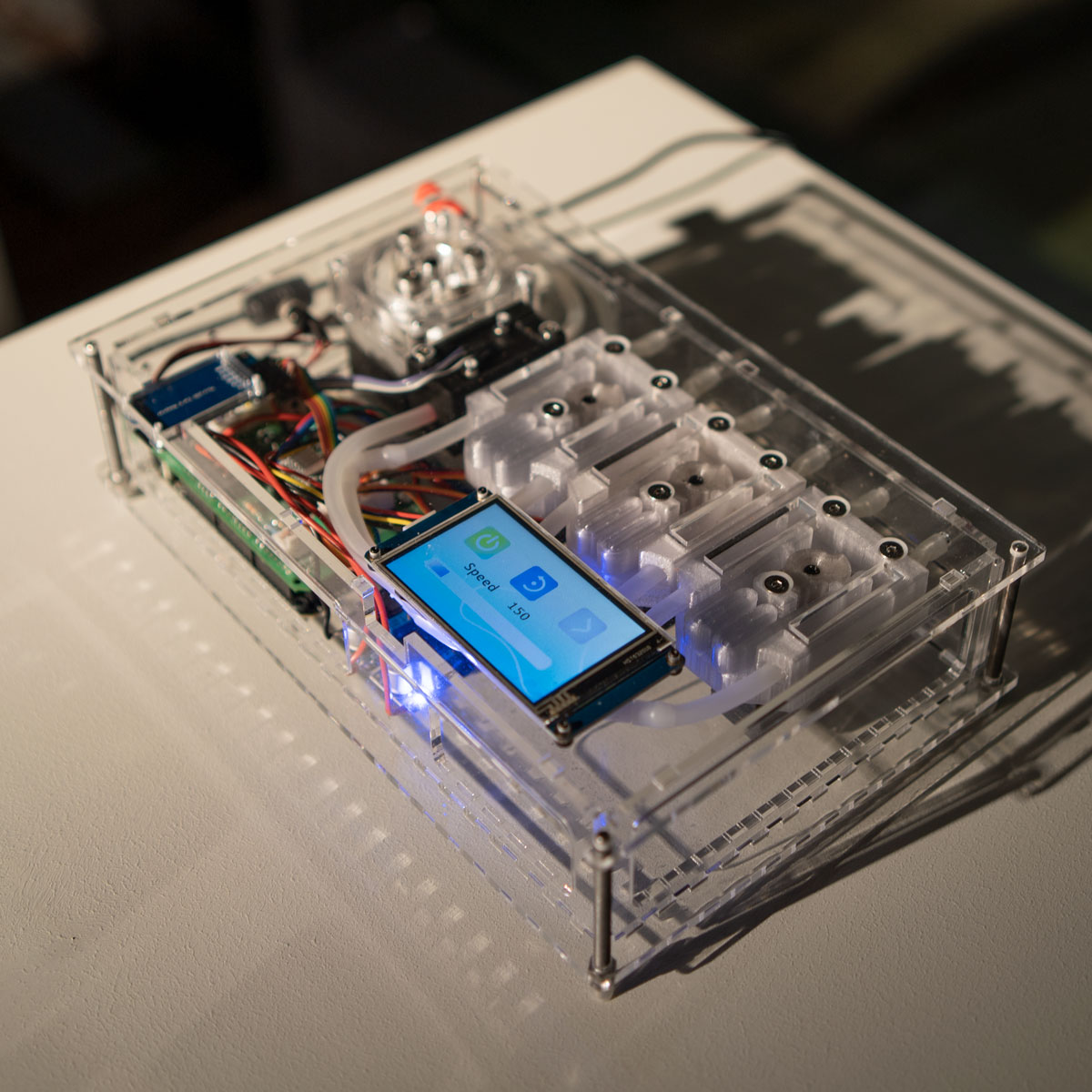
XYZ CARGO bikes are the world’s first cargo bikes with a completely modular construction: Their frame is bolted together from aluminum struts according to the special XYZ principle. Because of its modular design, the bikes are easy to adapt to individual needs, easy to repair and recycle, and also very light and resilient. Above all, however, they can be produced locally - under socially fair and sustainable conditions. - XYZ CARGO
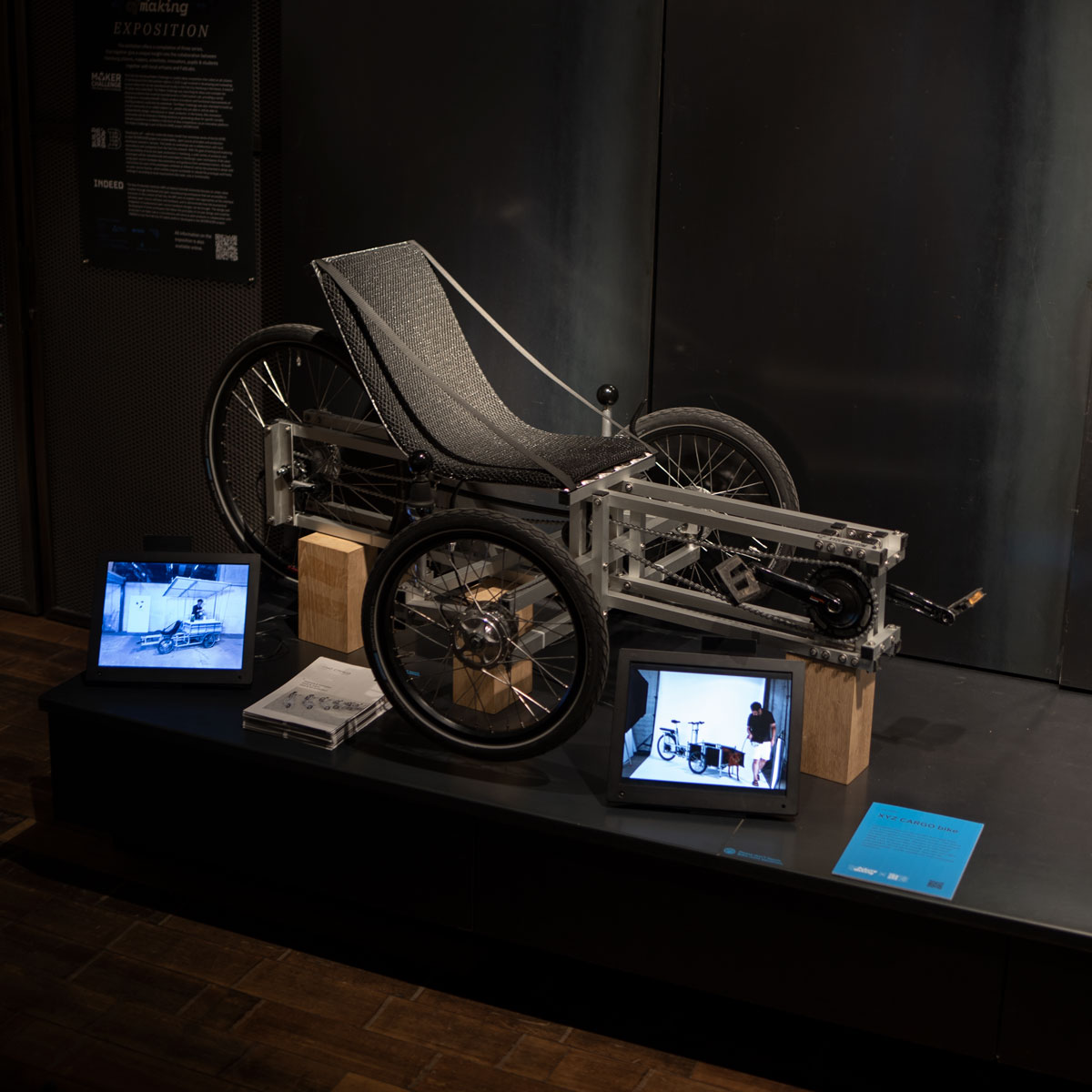
The balance board consists of two parts: the board and a roller on which the board is balanced using the body. Balance boards require little space and are suitable for a whole range of balance and bodyweight exercises. The board has been milled with a “Maslow CNC” and finished with classic woodworking tools, the surface design was engraved with a “Fabulaser Mini”. Both machine tools are Open Source Hardware controlled with Open Source Software. Board and roller are made of renewable raw materials: FSC®-certified oak wood and cork. - regenholz
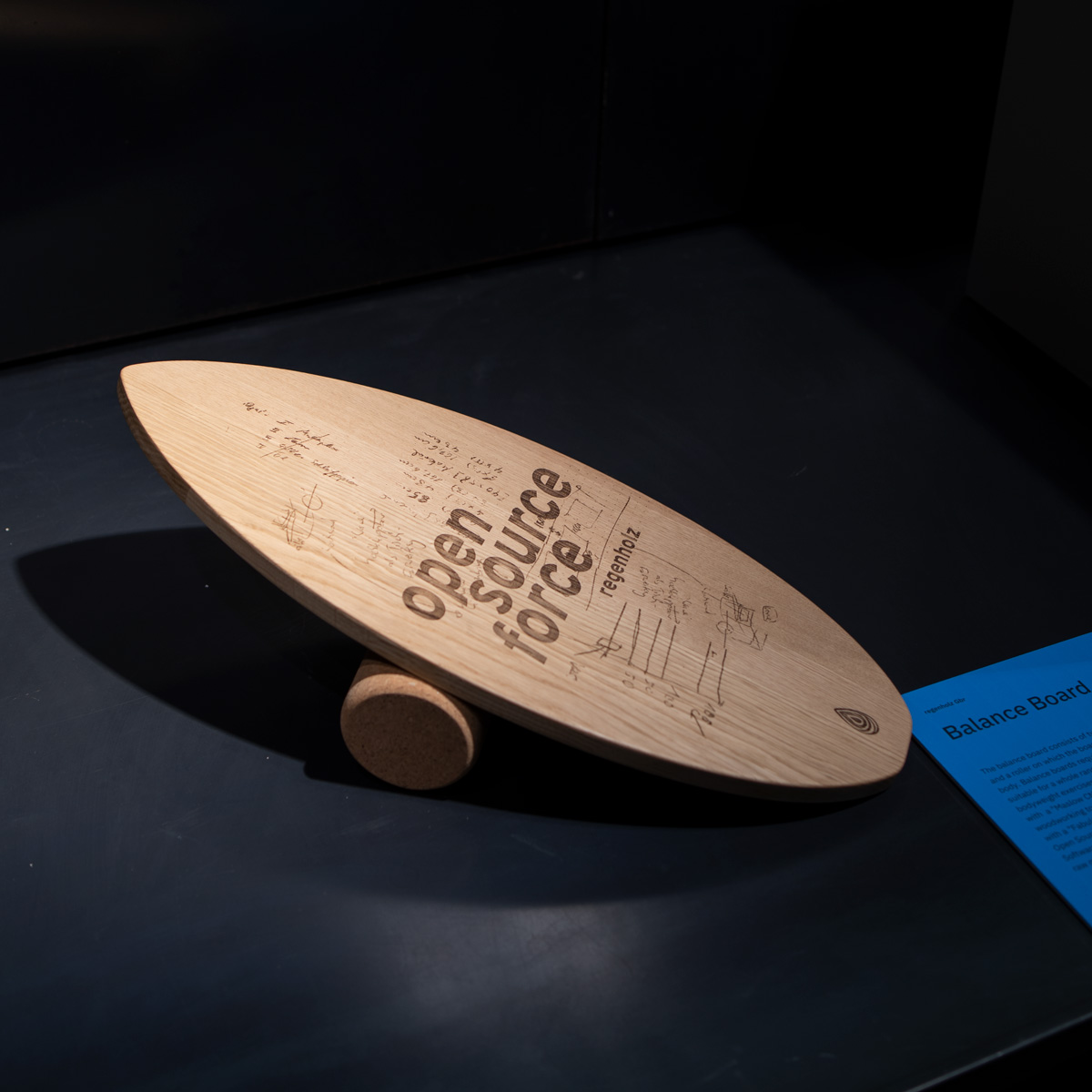
This sustainable stool/side table is made from spruce wood and Precious Plastic. The manufacturing process thereby brings together traditional craftsmanship and the challenges and opportunities for recycling plastic and wood. The combination of recycled plastic waste and upcycled scaffolding planks makes each product unique. - regenholz
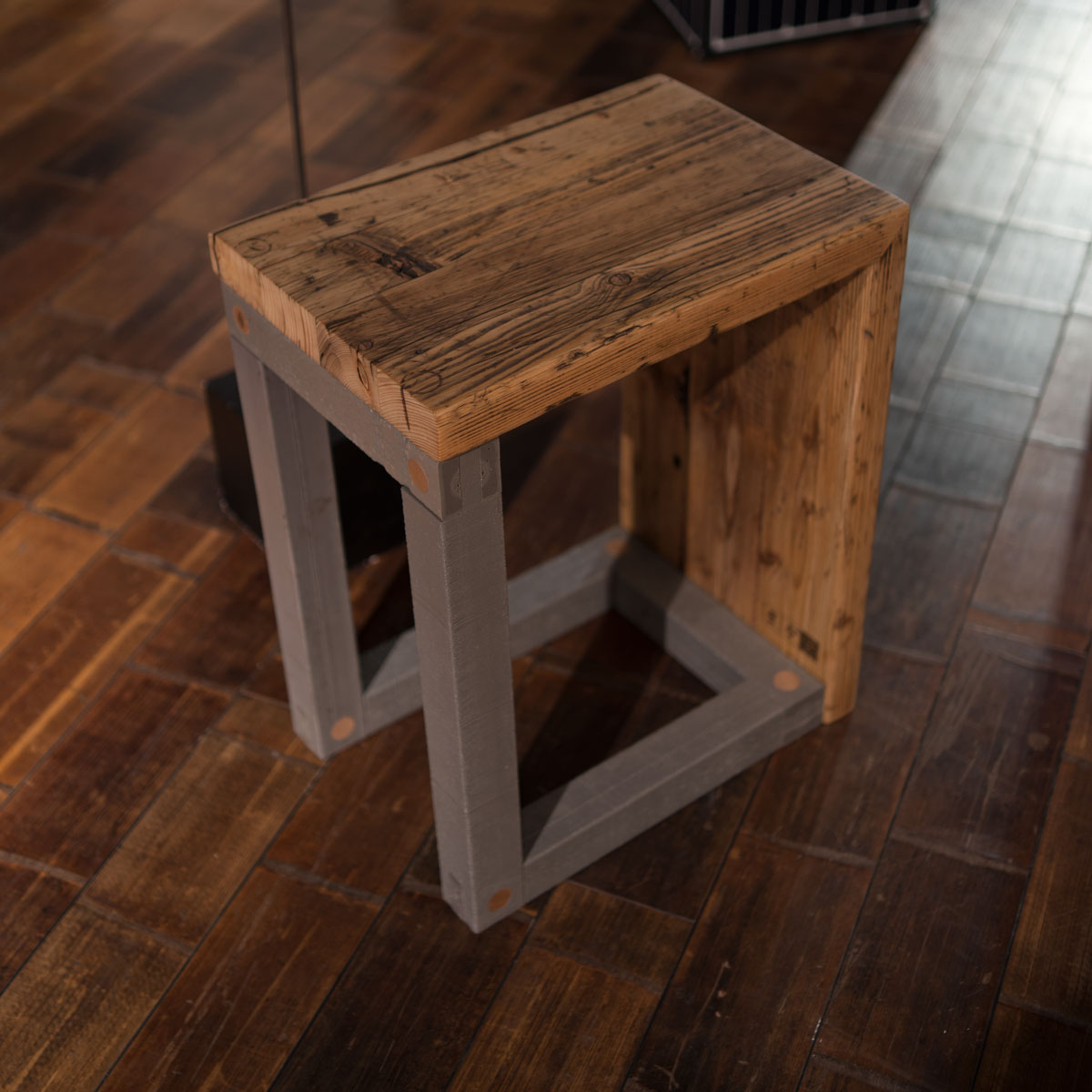
Mushroom mycelium as a recyclable biomaterial in combination with simple biological raw materials can be used for many things - including lampshades. The lampshade is completely biodegradable apart from its electronics and brings together natural materials and shapes with organic composite materials in a functional and appealing design. Mushroom cultivation can start decentralized in the city - already at your own kitchen table. In addition, the knowledge about mushrooms is constantly being further developed by a large community and made freely available as “Citizen Science”. - Curious Community Labs e. V.
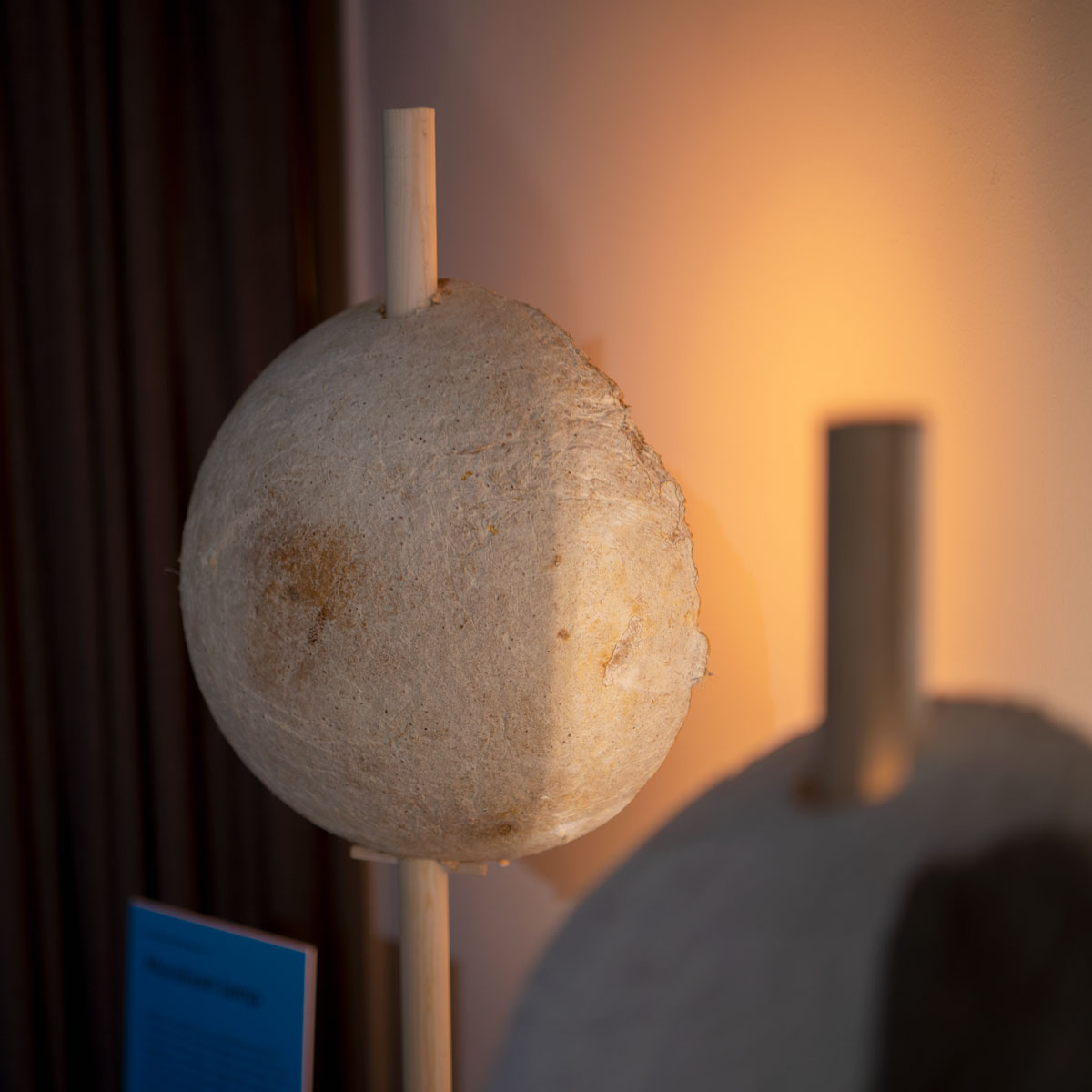
This 3D printer is an open source hardware model based on an open source design. The design includes a self-supporting frame that also acts as a protective enclosure. The 3D printer can handle different materials and is suitable for very fast printing speeds. - HoFaLab e.V.
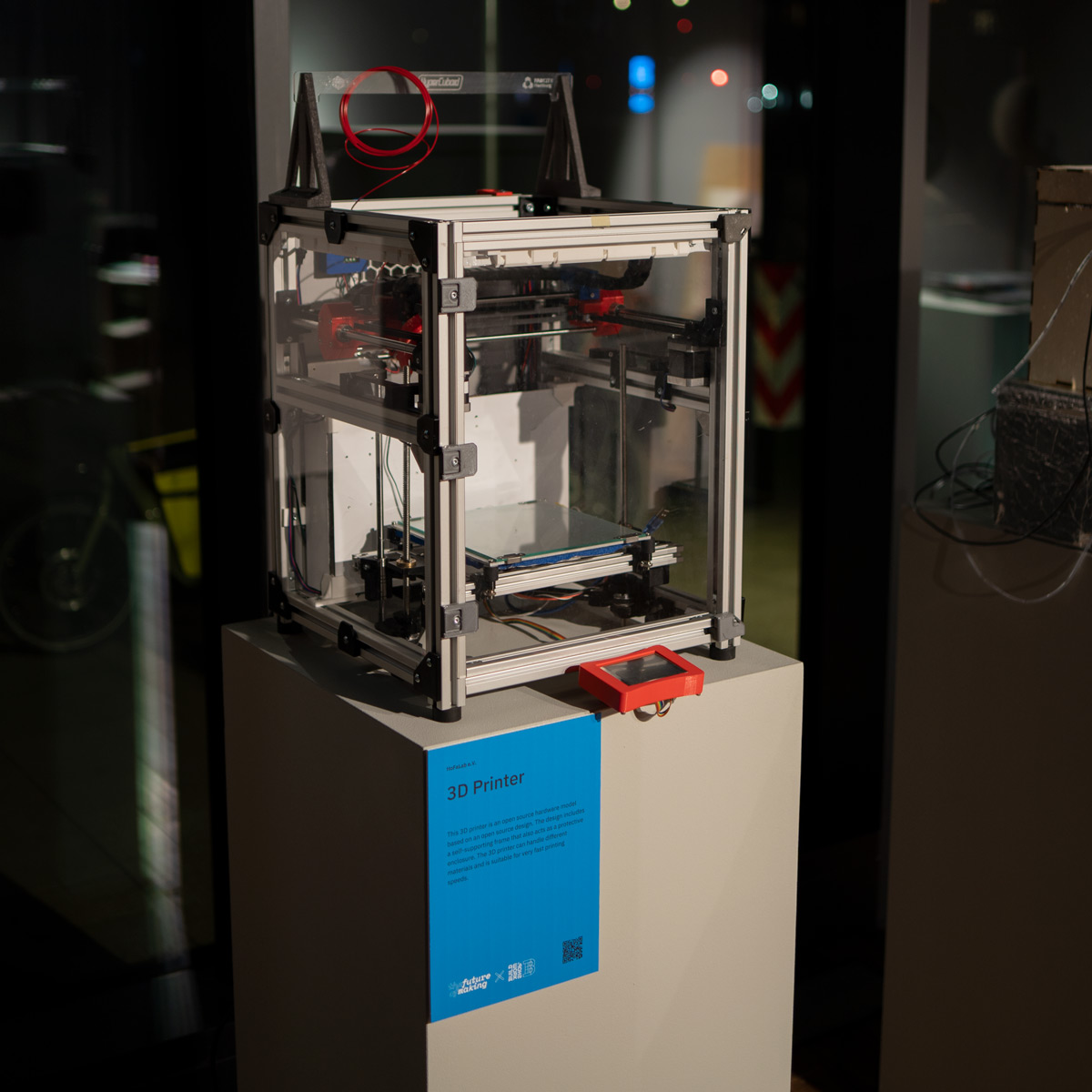
With your own DIY micro-biogas plant prototype, you can build an ultra-local power cycle: You can produce biogas for cooking and fertilizer for your own garden from locally generated organic waste using a simple process - Closing the loop! The underlying process is based on the microbial decomposition of organic matter (e.g. biowaste) under exclusion of air (anaerobic digestion). This process produces biogas, which consists mainly of combustible methane. You can then use this biogas to operate a modified gas stove. - Fab Lab Fabulous St. Pauli e.V.
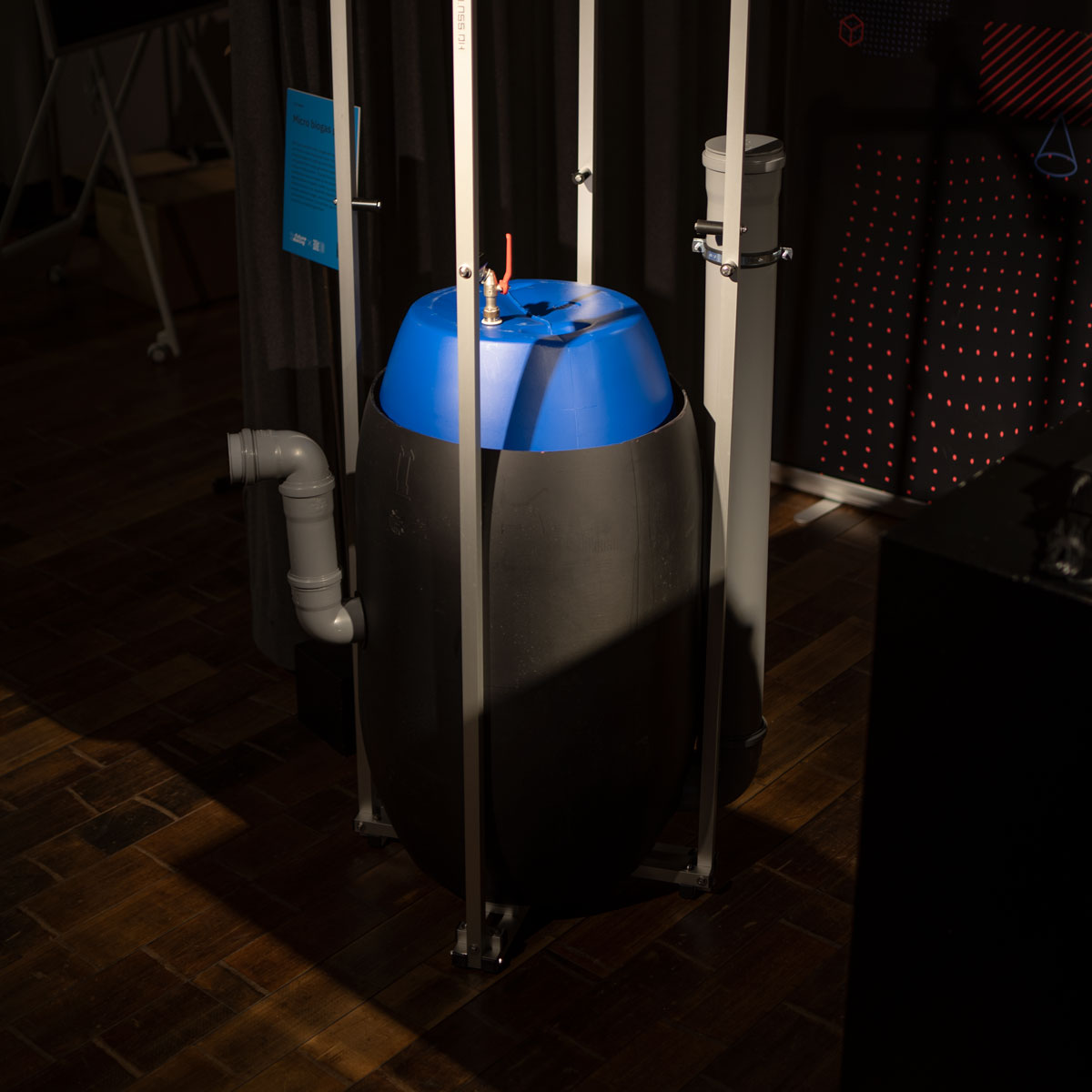
Plankton is the basis of the global food chain. Understanding these small organisms is crucial to understand our world. To learn more about these small organisms and the ocean, there is the PlanktoScope aquatic microscope. It can not only visualize the organisms, but also photograph, categorize and collect them based on AI using software. In contrast to classical light microscopy, the PlanktoScope takes a special approach that largely automates the process of sample preparation, image recording and post-processing. - Curious Community Labs e. V.
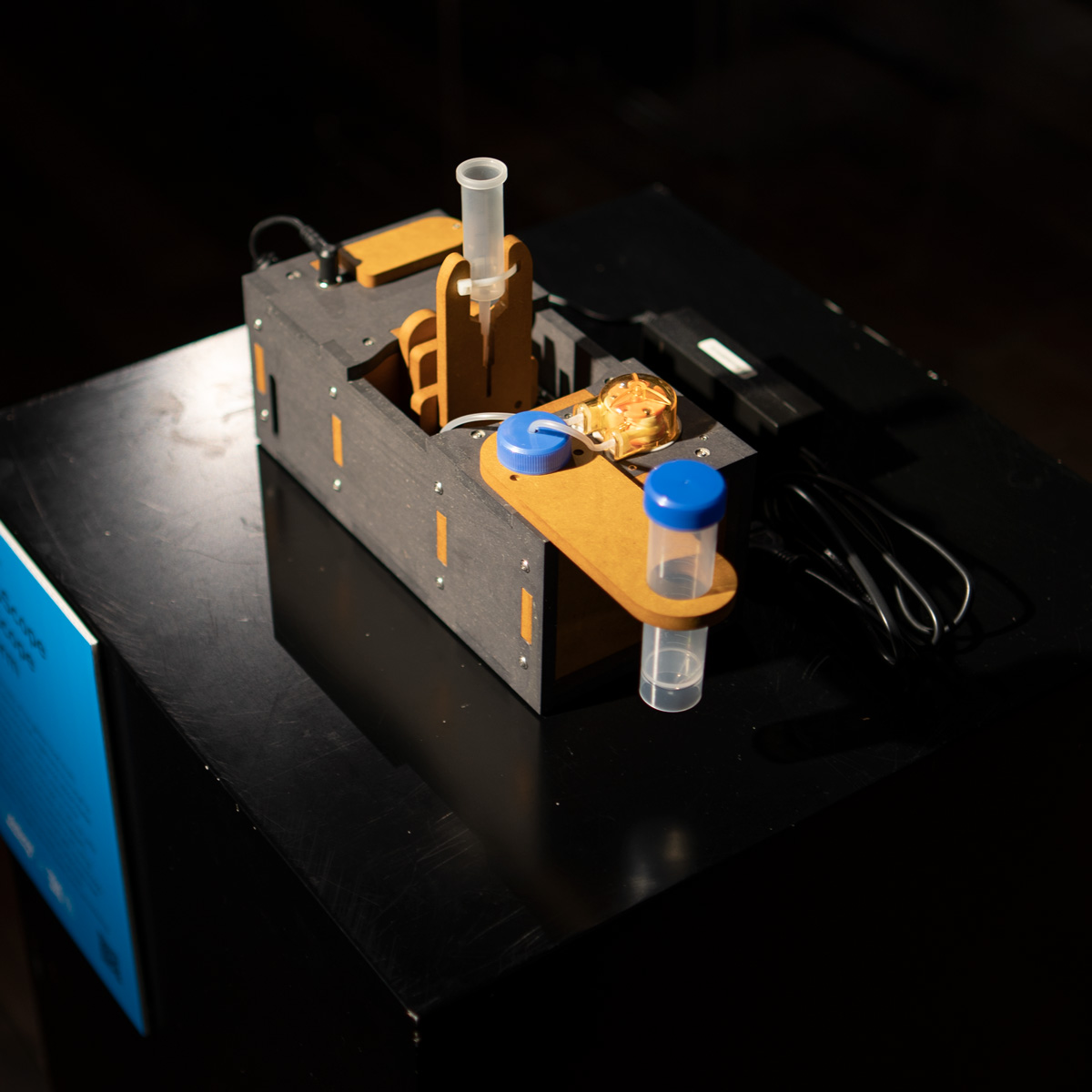
The main focus of this case lies in its production - the new cutting technique by lasercutter and consequently open source graphic software. The precise work of the laser cutter makes it possible to produce a material with stretchy properties, which can be used in many ways. - House of All UG
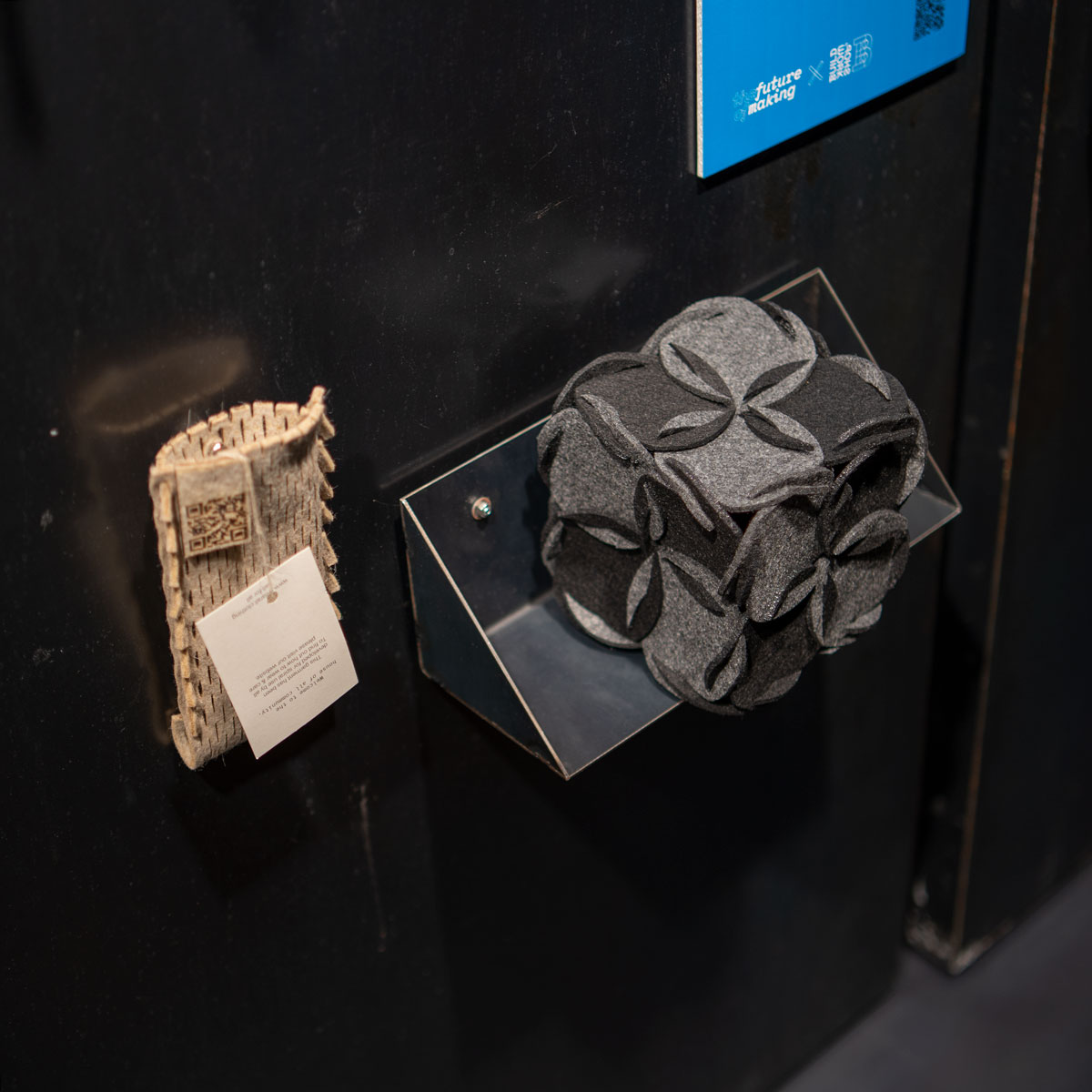
Vertical greening has many advantages in cities. It can not only enhance the living environment, but also shade, cool, and improve the air. The modular plant container is made of recycled plastic and provides constant moisture with the addition of a solar-powered drip irrigation system. - Insel e.V.
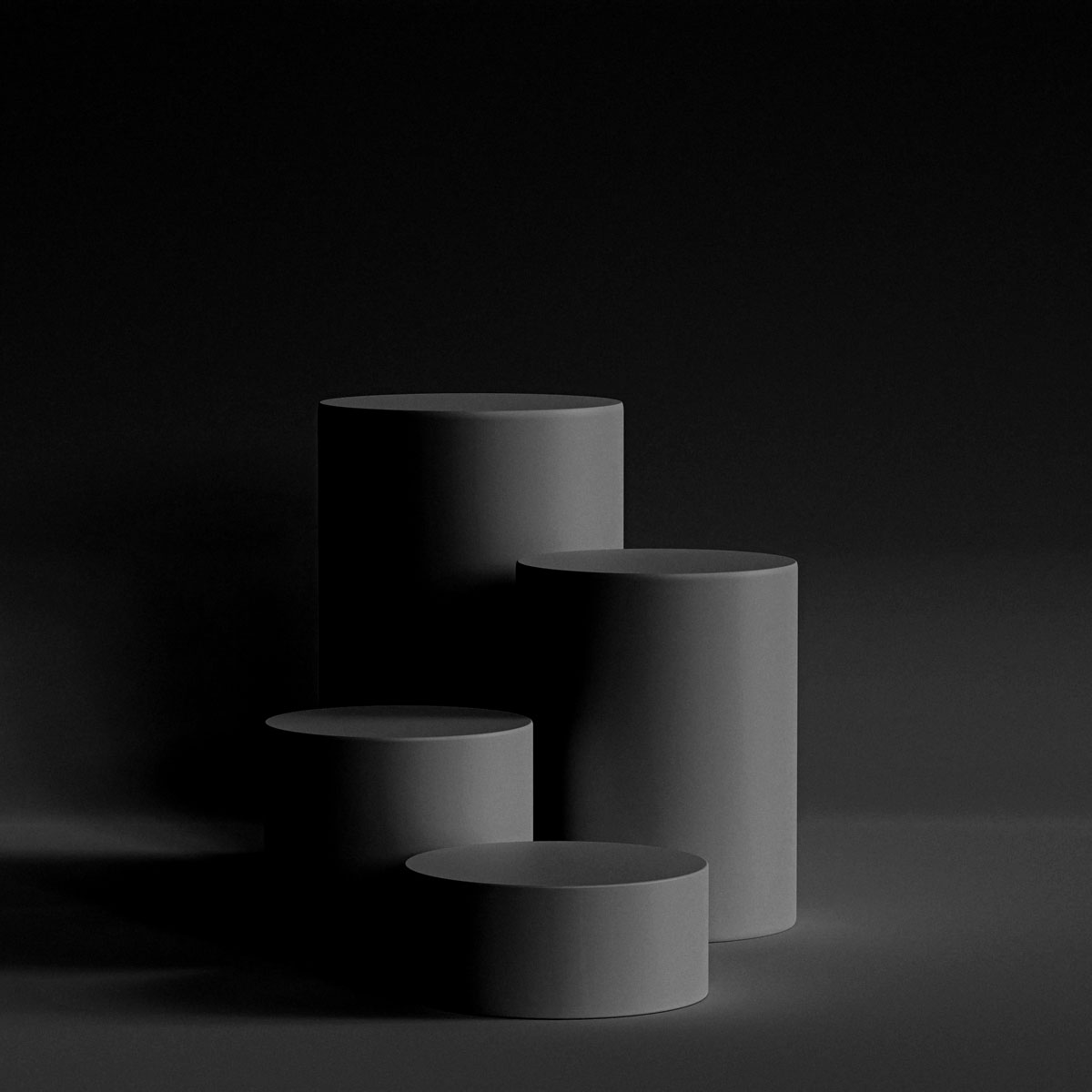
More about the series:
INDEED
The New Production Institute (NPI) at Helmut Schmidt University focuses on urban value creation through distributed and open manufacturing workspaces that are accessible to everyone. In the context of Fab City, the NPI aims to explore new approaches at the interface between open-source software and hardware, and to demonstrate how the economical integration of professional open-source hardware designs can be brought. The design and development of three prototypes that follow the principles of circular design and could be produced in an Open Lab or a microfactory will serve as pilot products in collaboration with INDEED to test the Fab City OS digital platform developed in the INTERFACER project.Exhibits:
All circular design principles were taken into account in the design of this cordless screwdriver, and numerous of them were implemented. This makes it possible to use the resources of the Fab City of tomorrow for as long as possible in the city’s own product and material cycle, with the positive side effect of a significantly reduced CO₂ footprint. The product architecture was fundamentally revised to make the functional components of the cordless screwdriver modular and easy to replace and upgrade - both for users and for specialists in refurbishing, remanufacturing and recycling processes. The user experience has been designed so that disassembly and reassembly can be done in a few steps without special tools. By combining individual components into assemblies, this can be done safely and without errors, even by non-professionals.
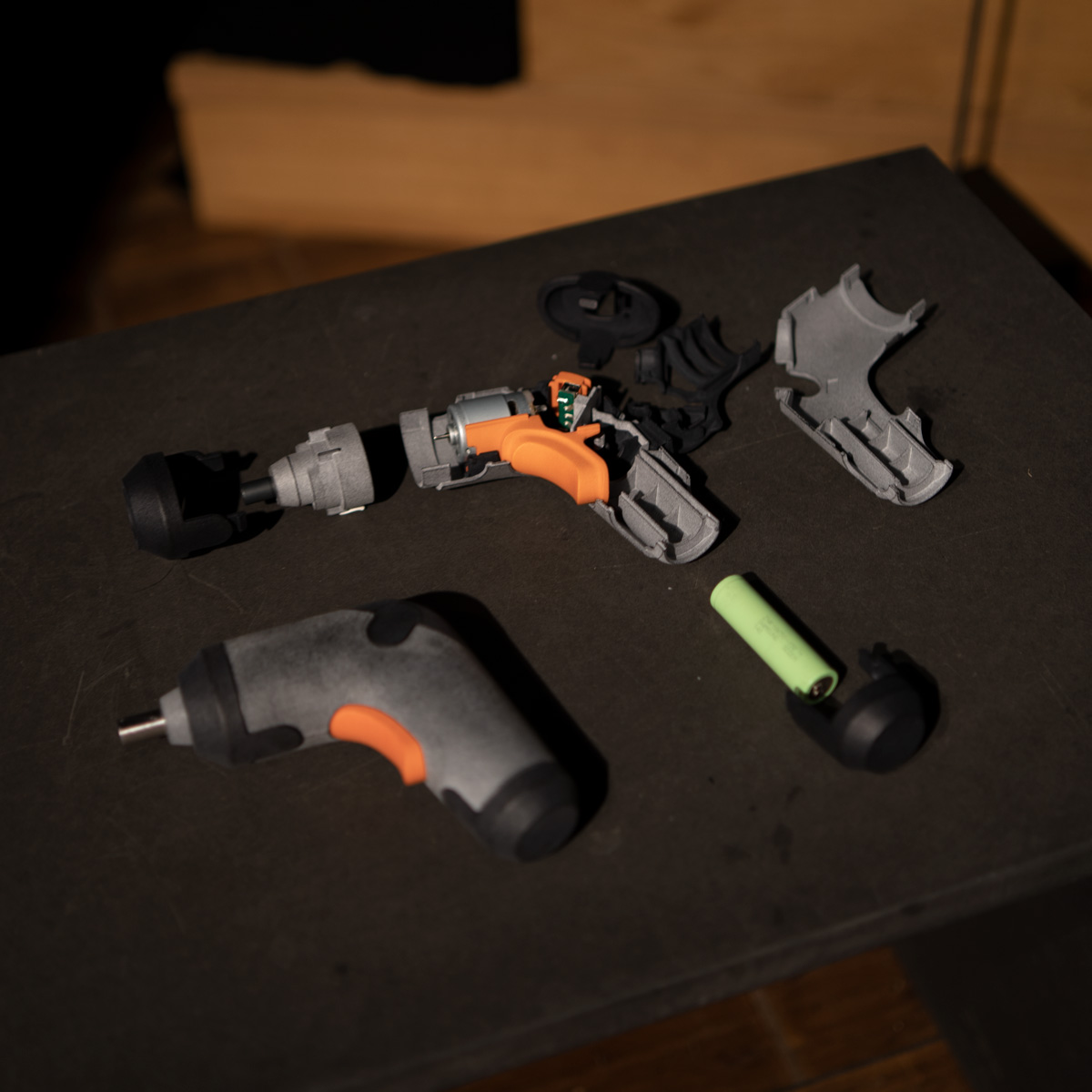
Poplar wood is not a typical furniture material. With Pop.Shelf, we have nevertheless found a way to translate the advantages of the material into a customizable shelving design that promotes regional agroforestry to regenerate overused farmland, strengthen biodiversity and improve the microclimate. Pop.Shelf can be made with simple machines or common CNC routers. The shelf is made of poplar boards of the same thickness and can be produced with minimal waste. All components are held together by cords that create tension forces by twisting and stabilize the structure. The crossed bracing on the back allows for leveling uneven floors. A special feature of the design is the parametric construction data, which allows users to freely choose the shelf dimensions, as well as the number and spacing of the shelves.
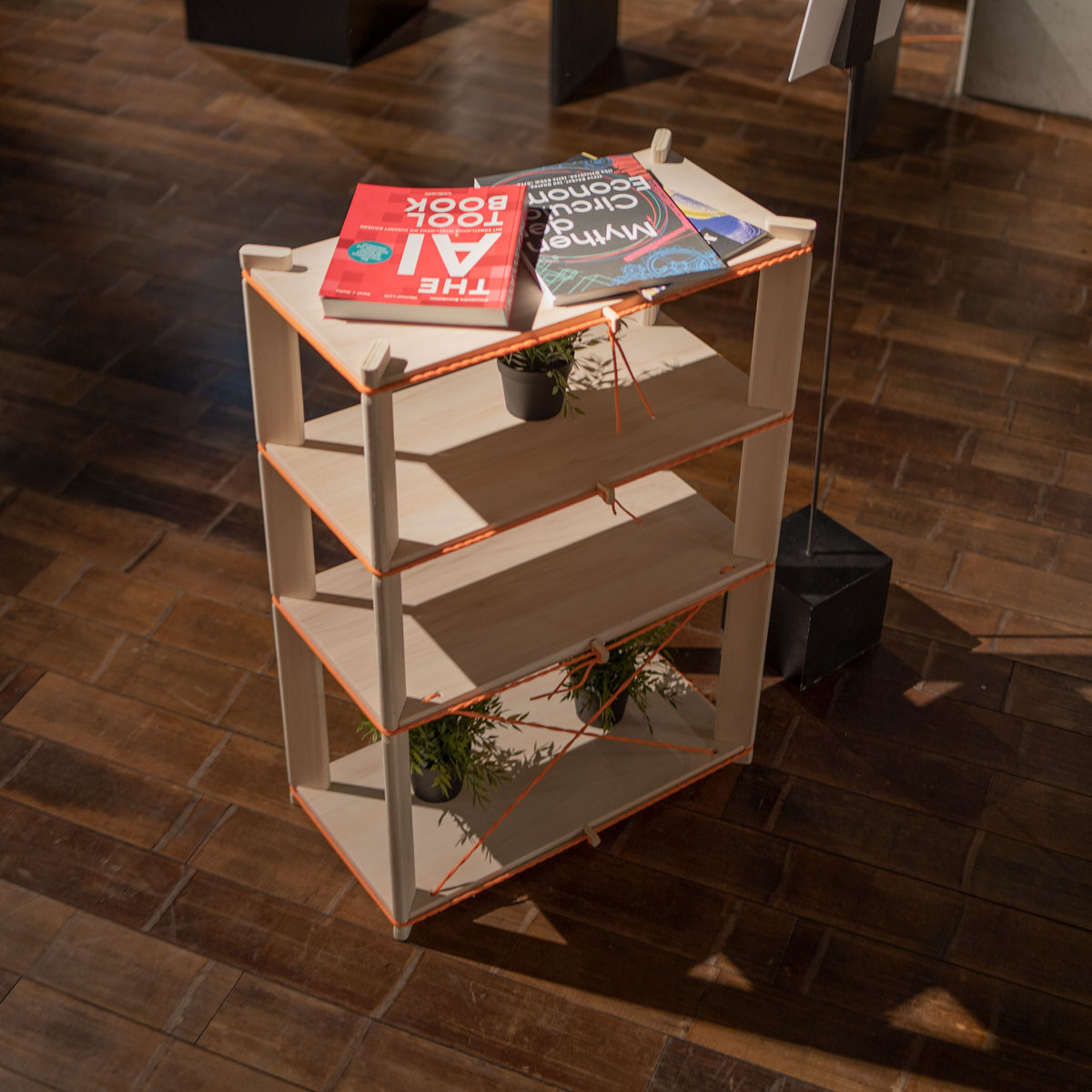
Shift-Light is a modular light object whose design is based on 5 Circular Design principles: Modularity, Reuse, Upgrade, Repair and Sufficiency. Instead of requiring a large number of luminaires for different applications, a few Shift-Lights can be used to create numerous lighting scenarios. The luminaire(s) accompany the user(s) throughout the day and can be adapted in a modular fashion to suit the room, requirements and mood. The louvers can be made from a wide variety of sheet materials. Through the parametric of the 3D data, material thickness, dimensions of the lamp (diameter and height), and number of slats can be adjusted in a digital interface. Since the parts are simply plugged into each other, repairs and adjustments to the design can be made easily and quickly. New trends and preferences can be integrated without having to buy a new product.
